Click on the link to view the page:
Islam (The Quran and Hadith) against Women and Human Rights
Women are NOT Respected and are NOT Equal in Islam
The truth about Islam and women abuse (Don't be fooled by Islamic propaganda)
Islam's doctrines of deception
Can There Be an Islamic Democracy?
Islam (The Quran and Hadith) against Women and Human Rights
Muslim countries have signed to the U.N. Charter on Human Rights, but have summarily failed in deliverying it to its non-Muslim populations as well as women.
The Koran, the holy book of Muslims, and Hadith (fatwas of the prophet Muhammad) contain numerous passages that are incompatible with the UN Declaration of Human Rights to which, by the way, all Muslim states have officially subscribed.
 One might argue that the Bible and the Old Testament of both Christians and Jews also contain atrocious passages that go against human rights (For further information, click here). However, while Christians and Jews ignore these atrocious passages and look at them in a historical context, Muslim believers, especially radical Muslims, do not. They are convinced that both the Koran and Hadith are sacred scriptures; the word of Allah and must be followed and implemented to the letter. Suicide and car bombers are a clear case in point. Many Muslims believe that Sharia (which includes both the Koran and Hadith) must be introduced and applied all over the world as the only best law for all human beings.
One might argue that the Bible and the Old Testament of both Christians and Jews also contain atrocious passages that go against human rights (For further information, click here). However, while Christians and Jews ignore these atrocious passages and look at them in a historical context, Muslim believers, especially radical Muslims, do not. They are convinced that both the Koran and Hadith are sacred scriptures; the word of Allah and must be followed and implemented to the letter. Suicide and car bombers are a clear case in point. Many Muslims believe that Sharia (which includes both the Koran and Hadith) must be introduced and applied all over the world as the only best law for all human beings.
Here are some examples which clearly show that Islam is diametrically opposed to universal human rights.
While Article 18 of the UN Declaration of Human Rights prescribes: “Everyone has the right to freedom of thought, conscience and religion; this right includes freedom to change his religion or belief ….” the Koran prescribes the opposite. It says about freedom of thought, conscience and religion:
“O you who believe! do not take the Jews and the Christians for friends; they are friends of each other; and whoever amongst you takes them for a friend, then surely he is one of them; surely Allah does not guide the unjust people.” (Sura 5, verse 51).
And the Jews say: Uzair is the son of Allah; and the Christians say: The Messiah is the son of Allah; these are the words of their mouths; they imitate the saying of those who disbelieved before; may Allah DESTROY them; how they are turned away!” (Sura 9, verse 30).
And the Jews will not be pleased with you, nor the Christians until you follow their religion. Say: Surely Allah's guidance, that is the (true) guidance. And if you follow their desires after the knowledge that has come to you, you shall have no guardian from Allah, nor any helper.” (Sura 2, verse 120).
“And KILL them (the unbelievers) wherever you find them, and drive them out from whence they drove you out, and persecution is severer than slaughter, and do not fight with them at the Sacred Mosque until they fight with you in it, but if they do fight you, then slay them; such is the recompense of the unbelievers.” (Sura 2, verse 191).
“So when you meet those who disbelieve, strike their necks until, when you have inflicted slaughter upon them, then secure their bonds, and either confer favor afterwards or ransom them. That is the command. And if Allah had willed, He could have taken vengeance upon them, but He ordered armed struggle to test some of you by means of others.”(Sura 47, verse 4)
“Let not the believers take the unbelievers for friends rather than believers; and whoever does this, heshall have nothing of (the guardianship of) Allah, but you should guard yourselves against them, guarding carefully; and Allah makes you cautious of (retribution from) Himself; and to Allah is the eventual coming.” (Sura 3, verse 28).
And what does the Koran say about freedom of religion and about those who turn their back to Islam and commit apostasy?
“They desire that you should disbelieve as they have disbelieved, so that you might be (all) alike; therefore take not from among them (the unbelievers) friends until they flee (their homes) in Allah's way; but if they turn back, then seize them and KILL them wherever you find them, and take not from among them a friend or a helper.” (Sura 4, verse 89).
While the UN Declaration of Human Rights condemns in Article 2 any discrimination based on sex by saying, “Everyone is entitled to all the rights and freedoms set forth in this Declaration, without distinction of any kind, such as race, color, sex, language, religion, political or other opinion, national or social origin, property, birth or other status,” the Koran calls for discrimination against women. It says:
“Men are superior to women because Allah has made so. Therefore good women are obedient, and (as to) those (women) on whose part you fear desertion, admonish them, and leave them alone in the sleeping-places and BEAT them; then if they obey you, do not seek a way against them; surely Allah is High, Great.” (Sura 4, verse 34).
“And as for those who are guilty of an indecency from among your women, call to witnesses against them, four (witnesses) from among you; then if they bear witness confine them to the houses until death takes them away or Allah opens some way for them.” (Sura 4, verse 15).
Men are allowed to beat women:
“Men are the maintainers of women because Allah has made some of them to excel others and because they spend out of their property; the good women are therefore obedient, guarding the unseen as Allah has guarded; and (as to) those on whose part you fear desertion, admonish them, and leave them alone in the sleeping-places and beat them; then if they obey you, do not seek a way against them; surely Allah is High, Great.” (Sura 4, verse 34)
According to the Koran, a woman’s testimony is worth half of that of a man:
O you who believe! when you deal with each other in contracting a debt for a fixed time then call in to witness from among your men two witnesses; but if there are not two men, then one man and two women from among those whom you choose to be witnesses, so that if one of the two errs, the second of the two may remind the other.” (Sura 2, verse 282).
As far as sex is concerned, women are sex objects, according to the Koran. They must be ready for intercourse any time the husband wishes:
“Your wives are a tilth for you, so go into your tilth when you like, and do good beforehand for yourselves, and be careful (of your duty) to Allah, and know that you will meet Him, and give good news to the believers.” (Sura 2, verse 223).
During menstruation, however, men should keep away from women; they are filthy. The Koran says:
“It (menstruation) is a discomfort; therefore keep aloof from the women during the menstrual discharge and do not go near them until they have become clean; then when they have cleansed themselves, go in to them as Allah has commanded you; surely Allah loves those who turn much (to Him), and He loves those who purify themselves.” (Sura 2, verse 222).
 According to the Koran women are, in general, unclean creatures. After a Muslim has washed and prepared himself for prayer, he should not touch a woman. Therefore, “pious” Muslims never shake hands with women.
According to the Koran women are, in general, unclean creatures. After a Muslim has washed and prepared himself for prayer, he should not touch a woman. Therefore, “pious” Muslims never shake hands with women.
“O you who believe! do not go near prayer until you have washed yourselves; and if you have touched women, and you cannot find water, betake yourselves to pure earth, then wipe your faces and your hands; surely Allah is Pardoning, Forgiving.” (Sura 4, verse 43).
In case of inheritance, a woman inherits half of the portion a man inherits:
“They ask you for a decision of the law. Say: Allah gives you a decision concerning the person who has neither parents nor offspring; if a man dies (and) he has no son and he has a sister, she shall have half of what he leaves, and he shall be her heir she has no son; but if there be two (sisters), they shall have two-thirds of what he leaves; and if there are brethren, men and women, then the male shall have the like of the portion of two females; Allah makes clear to you, lest you err; and Allah knows all things.” (Sura 4, verse 176).
The Hadith is also full with passages that brazenly discriminate against women and followers of other faiths. Here are some of these passages:
Women are deficient in intelligence and religion:
"The women asked, "O Allah's Apostle! What is deficient in our intelligence and religion?" He said, "Is not the evidence of two women equal to the witness of one man?" They replied in the affirmative. He said, "This is the deficiency in her intelligence. Isn't it true that a woman can neither pray nor fast during her menses?" The women replied in the affirmative. He said, "This is the deficiency in her religion." (Book #6, Hadith #301)
Women who pass by a praying man annul his prayer:
Narrated 'Aisha: The things which annul prayer were mentioned before me (and those were): a dog, a donkey and a Woman. I said, "You have compared us (women) to donkeys and dogs. By Allah! I saw the Prophet praying while I used to lie in (my) bed between him and the Qibla. Whenever I was in need of something, I disliked to sit and trouble the Prophet. So, I would slip away by the side of his feet." (Book #9, Hadith #493)
A Jew also annuls the prayers of a man:
Narrated Abdullah ibn Abbas: Ikrimah reported on the authority of Ibn Abbas, saying: I think the Apostle of Allah (peace_be_upon_him) said: When one of you prays without a sutrah, a dog, an ass, a pig, a Jew, a Magian, and a woman cut off his prayer, but it will suffice if they pass in front of him at a distance of over a stone's throw. (Book #2, Hadith #0704)
Prophet Muhammad discriminates even against black dogs:
Abu Dharr reported: The Messenger of 'Allah (may peace be upon him) said: When any one of you stands for prayer and there is a thing before him equal to the back of the saddle that covers him and in case there is not before him (a thing) equal to the back of the saddle, his prayer would be cut off by (passing of an) ass, woman, and black Dog. I said: O Abu Dharr, what feature is there in a black dog which distinguish it from the red dog and the yellow dog? He said: O, son of my brother, I asked the Messenger of Allah (may peace be upon him) as you are asking me, and he said: The black dog is a devil. (Book #004, Hadith #1032)
While Article 13 of the UN Declaration of Human Rights stresses, “Everyone has the right to freedom of movement,” women in Islam are not allowed to travel alone:
(38) Narrated Ibn 'Umar: The Prophet said, "A Woman should not travel for more than three days except with a Dhi-Mahram (i.e. a male with whom she cannot marry at all, e.g. her brother, father, grandfather, etc.) or her own husband.)" (Book #20, Hadith #192)
(40) Narrated Abu Huraira: The Prophet (p.b.u.h) said, "It is not permissible for a Woman who believes in Allah and the Last Day to travel for one day and night except with a Mahram." (Book #20, Hadith #194)
Women are not allowed to mourn as long they want. Why only four months and ten days? Only Allah knows:
(49) Narrated Zainab bint Abi Salama: When the news of the death of Abu Sufyan reached from Sham, Um Habiba on the third day, asked for a yellow perfume and scented her cheeks and forearms and said, "No doubt, I would not have been in need of this, had I not heard the Prophet saying: "It is not legal for a Woman who believes in Allah and the Last Day to mourn for more than three days for any dead person except her husband, for whom she should mourn for four months and ten days." (Book #23, Hadith #370)
Non-Muslims are also subjugated to the “law” of Sharia:
(54) Narrated 'Abdullah bin 'Umar : The Jews brought to the Prophet a man and a Woman from amongst them who have committed (adultery) illegal sexual intercourse. He ordered both of them to be stoned (to death), near the place of offering the funeral prayers beside the mosque." (Book #23, Hadith #413)
A woman is allowed to fast only with permission from her husband:
The Messenger of Allah (may peace be upon him) said: No woman should observe fast when her spouse is present (in the house) but with his permission. And she should not admit any (mahram) in his house, while he (her husband) is present, but with his permission. And whatever she spends from his earnings without his sanction, for him is half the reward. (Book #005, Hadith #2238)
As a man, if you see an alien woman, rush immediately to your wife and have intercourse with her to repel the devil in that woman:
Jabir reported that Allah's Messenger (may peace be upon him) saw a woman, and so he came to his wife, Zainab, as she was tanning a leather and had sexual intercourse with her. He then went to his Companions and told them: The woman advances and retires in the shape of a devil, so when one of you sees a woman, he should come to his wife, for that will repel what he feels in his heart. (Book #008, Hadith #3240)
Jabir heard Allah's Apostle (may peace be upon him) say: When a woman fascinates any one of you and she captivates his heart, he should go to his wife and have an intercourse with her, for it would repel what he feels. (Book #008, Hadith #3242)
Women are solely for beauty, status, and believers. Their brains are insignificant:
Abu Huraira (Allah be pleased with him) reported Allah's Messenger (may peace be upon him) as saying: A woman may be married for four reasons: for her property, her status. her beauty and her religion, so try to get one who is religious, may your hand be besmeared with dust. (Book #008, Hadith #3457)
Women are crooks and useless creatures:
AbuHuraira (Allah be pleased with him) reported Allah's Messenger (may peace be upon him) as saying: woman is like a rib. When you attempt to straighten it, you would break it. And if you leave her alone you would benefit by her, and crookedness will remain in her. A hadith like this is reported by another chain of narrators. (Book #008, Hadith #3466)
A woman who commits adultery must be stoned to death. She sacrifices her life for Allah:
Imran b. Husain reported that a woman from Juhaina came to Allah's Apostle (may peace be upon him) and she had become pregnant because of adultery. She said: Allah's Apostle, I have done something for which (prescribed punishment) must be imposed upon me, so impose that. Allah's Apostle (may peace be upon him) called her master and said: Treat her well, and when she delivers bring her to me. He did accordingly. Then Allah's Apostle (may peace be upon him) pronounced judgment about her and her clothes were tied around her and then he commanded and she was stoned to death. He then prayed over her (dead body). Thereupon Umar said to him: Allah's Apostle, you offer prayer for her, whereas she had committed adultery! Thereupon he said: She has made such a repentance that if it were to be divided among seventy men of Medina, it would be enough. Have you found any repentance better than this that she sacr ficed her life for Allah, the Majestic? (Book #017, Hadith #4207)
Women are simply bad luck, bad omen:
'Umar b. Muhammad b. Zaid reported that he heard his father narrating from Ibn 'Umar that Allah's Messenger (may peace be upon him) had said. If bad luck is a fact, then it is in the horse, the woman and the house. (Book #026, Hadith #5526)
Narrated Sa'd ibn Malik: The Prophet (peace_be_upon_him) said: There is no hamah, no infection and no evil omen; if there is in anything an evil omen, it is a house, a horse, and a woman. (Book #29, Hadith #3911)
Women are breeding machines:
Narrated Ma'qil ibn Yasar: A man came to the Prophet (peace_be_upon_him) and said: I have found a woman of rank and beauty, but she does not give birth to children. Should I marry her? He said: No. He came again to him, but he prohibited him. He came to him third time, and he (the Prophet) said: Marry women who are loving and very prolific, for I shall outnumber the peoples by you. (Book #11, Hadith #2045)
A woman is an unavoidable evil, and marrying a woman is like buying a slave:
Narrated Abdullah ibn Amr ibn al-'As: The Prophet (peace_be_upon_him) said: If one of you marries a woman or buys a slave, he should say: "O Allah, I ask Thee for the good in her, and in the disposition Thou hast given her; I take refuge in Thee from the evil in her, and in the disposition Thou hast given her." When he buys a camel, he should take hold of the top of its hump and say the same kind of thing. (Book #11, Hadith #2155)
If you incite a slave against their master, you are not a good Muslim:
Narrated AbuHurayrah: The Prophet (peace_be_upon_him) said: Anyone who incites a woman against her husband or a slave against his master is not one of us. (Book #12, Hadith #2170)
While Article 16 of the UN Declaration of Human Rights stresses that men and women “are entitled to equal rights as to marriage, during marriage and at its dissolution,” Islam makes it difficult for women to divorce:
Narrated Thawban: The Prophet (peace be_upon_him) said: If any woman asks her husband for divorce without some strong reason, the odour of Paradise will be forbidden to her. (Book #12, Hadith #2218)
If you want to free a slave, free first the men, then the women:
Narrated Aisha, Ummul Mu'minin: Al-Qasim said: Aisha intended to set free two slaves of her who were spouses. She, therefore, asked the Prophet (peace_be_upon_him) about this matter. He commanded to begin with the man before the woman. The narrator Nasr said: AbuAli al-Hanafi reported it to me on the authority of Ubaydullah. (Book #12, Hadith #2229)
Forced marriage and forced divorce:
Narrated Abdullah ibn Abbas: A woman embraced Islam during the time of the Apostle of Allah (peace_be_upon_him); she then married. Her (former) husband then came to the Prophet (peace_be_upon_him) and said: Apostle of Allah, I have already embraced Islam, and she had the knowledge about my Islam. The Apostle of Allah (peace_be_upon_him) took her away from her latter husband and restored her to her former husband. (Book #12, Hadith #2231)
The son of a slave woman consummated by a free man is not allowed to inherit anything:
Narrated Abdullah ibn Amr ibn al-'As: The Prophet (peace_be_upon_him) decided regarding one who was treated as a member of a family after the death of his father, to whom he was attributed when the heirs said he was one of them, that if he was the child of a slave-woman whom the father owned when he had intercourse with her, he was included among those who sought his inclusion, but received none of the inheritance which was previously divided; he, however, received his portion of the inheritance which had not already been divided; but if the father to whom he was attributed had disowned him, he was not joined to the heirs. If he was a child of a slave-woman whom the father did not possess or of a free woman with whom he had illicit intercourse, he was not joined to the heirs and did not inherit even if the one to whom he was attributed is the one who claimed paternity, since he was a child of fornication whether his mother was free or a slave. (Book #12, Hadith #2258)
A woman whose husband dies must not use any make-up, neither dress up as she pleases. The same does not apply to the man:
Narrated Umm Salamah, Ummul Mu'minin: The Prophet (peace_be_upon_him) said: A woman whose husband has died must not wear clothes dyed with safflower (usfur) or with red ochre (mishq) and ornaments. She must not apply henna and collyrium. (Book #12, Hadith #2297)
Islam is against human rights not only in theory, but also in practice under the Taliban in Afghanistan and Pakistan, under Hamas in Gaza, under Hezbollah in southern Lebanon, in Saudi Arabia, in Iran, Egypt, in the Arab Gulf states, Sudan, Somalia, and Morocco.
After all the above blatant evidence, President Obama and apologists across the globe still believe that Islam is a tolerant “religion.” On the contrary, Islam is a fanatic, stone-age “religion.
Dr. Sami Alrabaa, an ex-Muslim, is a professor of Sociology and an Arab-Muslim culture specialist. He has taught at Kuwait University, King Saud University, and Michigan State University. He also contributed to Jerusalem Post.
The truth about Islam and women abuse (Don't be fooled by Islamic propaganda)
Wondrous Treatment Of Women In Islam
T he purpose of this article is to show how the barbaric nature of Islam manifests itself in the cruel treatment of women.
 1. Lets start with the "great" Mohammed himself, the founder of this "fabulous" faith. Mohammed was married to Khadija Bibi, his employer and 15 years his senior. At that time Mohammed was 25 years old. He was Khadija Bibi's third husband. Khadija Bibi was a widow when she married Mohammed. For the first time in his life, Mohammed enjoyed a luxurious life.
1. Lets start with the "great" Mohammed himself, the founder of this "fabulous" faith. Mohammed was married to Khadija Bibi, his employer and 15 years his senior. At that time Mohammed was 25 years old. He was Khadija Bibi's third husband. Khadija Bibi was a widow when she married Mohammed. For the first time in his life, Mohammed enjoyed a luxurious life.
This shows the parasitic nature of Mohammed who married his employer so that he can live a rich life without putting in a single day's work.
2. Khadija Bibi died when Mohammed was 49 years old. Between the ages of 49 and 63 the "great prophet" married at least 11 times.
This shows how he treated the institution of marriage. For him, women were nothing but objects for sexual fulfillment. Marrying at least 11 women in 14 years throws light on his insatiable sexual appetite.
Read on about the "greatness" of this prophet.
3. Mohammed's favourite wife was Ayesha Bibi who was 6 years old when she was married to him.
Marrying a 6 year old baby clearly shows that Mohammed was not only a womanizer but also a child molester.  4. Mohammed's adopted son Zayed was married to Zainab, daughter of Jahsh. But one day the prophet "beheld in a loose undress, the beauty of Zainab, and burst forth into an ejaculation of devotion and desire. The servile, or greatful, freeman (Zayed) understood the hint and yielded without hesitation to the love of the benefactor."
4. Mohammed's adopted son Zayed was married to Zainab, daughter of Jahsh. But one day the prophet "beheld in a loose undress, the beauty of Zainab, and burst forth into an ejaculation of devotion and desire. The servile, or greatful, freeman (Zayed) understood the hint and yielded without hesitation to the love of the benefactor."
Mohammed was not satisfied with his own overflowing harem and had to marry his son's wife. His son being a devoted follower of the "great" prophet was more than happy to divorce his wife. What a great father-in-law Mohammed was, a model for all Islamic father-in-laws!
Mohammed preached what he practised. This is supported by the following verses from Quran and Hadiths.
Quotes from the "Holy" Quran on Women
II/223: Your women are a tilth for you (to cultivate). So go to your tilth as ye will...
Here you can clearly see how highly Islam treats women. Women in Islam are referred to as fields that are to be cultivated by man. What an honour for a Muslim woman!
IV/34: Men are in charge of women, because Allah hath made the one of them to excel the other.. As for those from whom ye fear rebellion, admonish them and banish them to beds apart, and scourge them.
First point to notice here is that Quran clearly states that Men are superior to women. Secondly, Islam instructs that a man should control his women through brutal violence and fear.
IV/15: (For women) If any one of your women is guilty of lewdness ...confine them until death claims them.
IV/16: (For Men) If two men among you commit indecency (sodomy) punish them both. If they repent and mend their ways, let them be. Allah is forgiving and merciful.
As you can see, for women any sort of sexual exploration is punishable by death. Whereas for a man, any form of perversion is pardoned by the all merciful Allah.
XXIV/6-7: As for those who accuse their wives but have no witnesses except themselves , let the testimony of one of them be four testimonies...
Here we see, that a husband can easily accuse his wife (or wives) and eventually sentence her to death by merely declaring four times that the accusation is true. On the other hand, women have no such right in Islam.
Quotes from Hadith TIRMZI AND OTHERS
- If a woman's conduct is mischievous or immodest, the husband has the right to beat her up but must not break her bones. She must not allow anybody to enter the house if her husband does not like him. She has the right to expect sustenance of her husband. (TR. P 439)
- It is forbidden for a woman to be seen by any man except her husband when she is made up or well-dressed. (TR. P 430)
- A woman is not a believer if she undertakes a journey which may last three days or longer, unless she is accompanied by her husband, son, father
- A woman must veil herself even in the presence of her husband's father, brother and other male relations. (TR. P 432)
- She is forbidden to spend any money without the permission of her husband, and it includes giving food to the needy or feast to friends. (TR. P 265)
- A wife is forbidden to perform extra prayers (NAFAL) or observe fasting (other than RAMADAN) without the permission of her husband. (TR. P 300)
- If prostration were a legitimate act other than to God, woman should have prostrated to her husband. (TR. P 428)
- If a man is in a mood to have sexual intercourse the woman must come immediately even if she is baking bread at a communal oven. (TR. P 428)
- The marriage of a woman to her man is not substantive. It is precarious. For example if the father of the husband orders his son to divorce his wife, he must do so. (TR. P 440)
- A woman who seeks KHULA i.e. divorce from her man, without a just cause, shall not enter paradise. (TR. P 440)
On the contrary, a husband can divorce his wife at will. - Majority of women would go to hell. (Muslim P 1431)
- If a woman refuses to come to bed when invited by her husband, she becomes the target of the curses of angles. Exactly the same happens if she deserts her husband's bed. (Bokhari P 93)
- Women who are ungrateful to their men are the denizens of hell; it is an act of ingratitude for a woman to say: "I have never seen any good from you." (Bokhari P 96)
- A woman in many ways is deprived of the possession of her own body. Even her milk belongs to her husband. (Bokhari P 27) She is not allowed to practise birth control either.
Quotes From Sahih Muslim Hadith
Chapter 540.The prophet said that he saw a woman coming and going in the shape of a devil and she fascinated him. So he came to his wife, Zainab, as she was tanning leather and had sexual intercourse with her. That drove out what he felt in his heart.
Chapter 558. The prophet said: "When a man calls his wife to bed and she does not come, the husband spends the night being angry with her, and the angels curse her until morning. The one who is in heaven is displeased with her until the husband is pleased with her.
Chpater 576. The prophet said :"Woman has been created from a rib, and will in no way be straightened for you."
Anwar Shaikh , the author of Islam: An Arab National Movement says:
"It shows the basic doctrine of Islam about womanhood, that is, she is basically crooked, and man has the right to keep her under his constant vigil; she must never be left alone."
In fact, another hadith expresses woman's position bluntly:
"I have not left any calamity more hurtful to man than woman."
Chapter 619: Selling a cat, selling a dog (unless it is a working dog), and earning of prostitutes(unless they are non-muslims),... are all forbidden.
This verse encourages the Muslim invaders to convert women of other faith into prostitutes for their own enjoyment as prostitution by non-muslims is NOT forbidden. We can see plenty of examples of this throughout history, especially Indian history.
Chapter 1140: The prophet said : "The majority of those who entered the fire of Hell were women."
So Islam considers most of the women are evil in nature and they end up in hell.
Malik 362:1221 Ibn Fahd said "I have some slave girls who are better than my wives, but I do not desire that they should all become pregnant. Shall I do azl(withdrawal) with them?" Hajjaj said "They are your fields of cultivation. If you wish to irrigate them do so, if not keep them dry."
The next three verses are related to each other.
Malik 364:1234 If a woman suckles a baby, she becomes its foster mother and her husband a foster father. If a man has two wives, and one suckles a boy the other a girl, the boy can not marry the girl as the foster father of each is the same.
The next verse contradicts the previous one.
Malik 364:1239 The rule pertaining to foster relationship only applies to children under 2 years. Thus (Malik 365:1243) a grown up man fed with the milk of a woman does not entail fostership.
Read the next verse carefully.
Malik 365:1245 A man said, "My wife has willfully given my slavegirl with whom I used to cohabit her own milk to drink. What is my relationship to the slave girl ?" Omar said "Punish your wife and go into your slave girl".
What more can I say about these golden verses from the "Holy" Quran and the enlightening Hadiths-- guidelines for every true Muslim!
Gazzali, the renowned Islamic thinker summed up the 18 pains that had been visited on Muslim women as a punishment for Eve's transgression in paradise. The list eloquently shows the position of women in Islam and how the social customs were backed up by Islam. Here Islam goes to the extent of saying that even pregnancy and childbirth are punishments from God. Such is the nature of the all merciful Allah!!!
The 18 punishments are:
- Menstruation
- Childbirth
- Separation from father and mother and marriage to a stranger
- Pregnancy
- Not having control over her own person
- A lesser share in inheritance.
- Her liability to be divorced and inability to divorce.
- It being lawful for man to have 4 wives but for a woman to have only 1 husband.
- The fact that she must stay secluded in the house
- The fact that she must keep her head covered inside the house.
- The fact that 2 women's testimonies have to be set against the testimony of one man.
- The fact that she must not go out of the house unless accompanied by a near relative.
- The fact that men take part in Friday and feast day funerals while women do not.
- Disqualification for rulership and judgeship.
- The fact that merit has 100 components, only one of which is attributable to women while 999 are attributed to men.
- The fact that if women are profligate they will be given only half as much torment as the rest of the community at the ressurection day.
- The fact that if their husbands die they must observe a waiting period of 4 months and 10 days before they remarry.
- The fact that if their husbands divorce them , they must observe a waiting period of 3 months or 3 menstrual periods before remarrying.
To enlighten the people who are ignorant about "Sati" Pratha in India, this custom was a result of Muslim oppression and brutality. The Hindu women of India, in order to save their honour, used to jump into the fire after their husbands were brutally murdered by Muslim invaders. The question that arises from this is why did they jump into the fire and kill themselves? Why didn't they just poison themselves? The reason for this is that the lecherous necrophiliac muslim invaders did not even leave the dead bodies alone. Yes, they had sex even with the dead bodies! How disappointing it must have been for them to find nothing, but ashes.
This is only a handful of facts that states the true nature of Islam.
Note: Works of A. Ghosh, Robert E. Burns, and Anwar Shaikh have been used to compose this article.
______________________________________
Women are NOT Respected and are NOT Equal in Islam
“The man that lays his hand on a woman,
Save in the way of kindness, is a wretch,
Whom ‘twere gross flattery to name a coward.”
- John Tobin, The Honeymoon
 When Americans and other Westerners think of Islam and the Middle East, perhaps one of the first images that comes to mind is that of Muslim women, swaddled in thick robes, their faces covered. Islam is generally associated with disrespect for the rights, and even the personhood, of women. Women in the Western world, and also in many non-Western countries such as India, Japan, Korea, and elsewhere, have seen their lot in life improved and their rights as human beings recognized. This sort of liberalization is not usually associated with the Muslim world, however. Is this a fair perception? Is there any basis for saying that Islam degrades women, that this disrespect is not just an aberration, but is ingrained within the Islamic religion? The answer to these questions, as ought to be seen by any clear-minded observer, is yes.
When Americans and other Westerners think of Islam and the Middle East, perhaps one of the first images that comes to mind is that of Muslim women, swaddled in thick robes, their faces covered. Islam is generally associated with disrespect for the rights, and even the personhood, of women. Women in the Western world, and also in many non-Western countries such as India, Japan, Korea, and elsewhere, have seen their lot in life improved and their rights as human beings recognized. This sort of liberalization is not usually associated with the Muslim world, however. Is this a fair perception? Is there any basis for saying that Islam degrades women, that this disrespect is not just an aberration, but is ingrained within the Islamic religion? The answer to these questions, as ought to be seen by any clear-minded observer, is yes.
Muslim Women in the West - The Whitewash
Muslim women in the United States and other Western nations often will allow themselves to be used to whitewash Islam's image as it is presented to the public at-large. Typically, these women living here in the West operate under the banner of "reaffirming" the rights that women have "traditionally" enjoyed in Islam. Much is made of the (technically true) fact that women in Islam are granted the rights to own property and receive inheritance, primarily. Indeed, in the light of the way in which women were treated in pre-Islamic Arabia, the granting of the rights to own property and to inherit from a dead relative is a step forward, considering women were denied even these in the pre-Islamic tribal system.
 However, it should be noted that the Muslim women who seek to promote Islam as a tolerant and progressive force for women’s rights often draw less than honest conclusions from the simple quranic affirmation of property rights. Typically, they attempt to draw their readers or listeners into jumping from this technically correct statement about women's rights in Islam to a false association of Islam with Western-style assertions of the personhood and legal rights of women. On a number of occasions, I have seen or heard Muslim women say that they are Muslim, and that they have the same rights and respect as a man, that Islam respects them and allows them the same freedom as men enjoy. Of course, what we need to remember is that these women are saying this while they are in the United States, or some other Western nation. Of course their ri
However, it should be noted that the Muslim women who seek to promote Islam as a tolerant and progressive force for women’s rights often draw less than honest conclusions from the simple quranic affirmation of property rights. Typically, they attempt to draw their readers or listeners into jumping from this technically correct statement about women's rights in Islam to a false association of Islam with Western-style assertions of the personhood and legal rights of women. On a number of occasions, I have seen or heard Muslim women say that they are Muslim, and that they have the same rights and respect as a man, that Islam respects them and allows them the same freedom as men enjoy. Of course, what we need to remember is that these women are saying this while they are in the United States, or some other Western nation. Of course their ri ghts are respected and they are not oppressed! They are living in a society where the sort of behavior which many Muslim men display towards women in Muslim countries is not generally tolerated. In the West, both law and popular opinion greatly discourage activities such as wife-beating and marriage to underage girls. Society would frown upon a man who made his wife wear a veil and stay inside the house unless he was with her. It would be neither understood nor accepted that women should have an inferior legal and moral status to men, as is held by a plain reading of the Qur'an and the ahadith. In the West, Islam has no choice but to respect the rights and dignity of women, lest it raise the ire of the general populace. However, one wonders what these Muslim women would say or think if they tried to take the same attitude in, say, Pakistan or Iran or Egypt. Clearly, the apologies for Islam made by Muslim women on the basis of some supposedly "enlightened" view of women's rights is nothing more than a cloak that is woven so as to try and cover the ugly truth about Islam's attitudes toward women.
ghts are respected and they are not oppressed! They are living in a society where the sort of behavior which many Muslim men display towards women in Muslim countries is not generally tolerated. In the West, both law and popular opinion greatly discourage activities such as wife-beating and marriage to underage girls. Society would frown upon a man who made his wife wear a veil and stay inside the house unless he was with her. It would be neither understood nor accepted that women should have an inferior legal and moral status to men, as is held by a plain reading of the Qur'an and the ahadith. In the West, Islam has no choice but to respect the rights and dignity of women, lest it raise the ire of the general populace. However, one wonders what these Muslim women would say or think if they tried to take the same attitude in, say, Pakistan or Iran or Egypt. Clearly, the apologies for Islam made by Muslim women on the basis of some supposedly "enlightened" view of women's rights is nothing more than a cloak that is woven so as to try and cover the ugly truth about Islam's attitudes toward women.
This has not, of course, impeded the proliferation of websites, pamphlets, and other venues purporting to show that women are equal with men in Islam, and that Islam elevates the fairer sex. Designed to appeal to the Western mind which operates under the paradigm of equal rights for all, these venues seek to redefine terms commonly used by Western thinkers, and often resort to blatant misrepresentations so as to present a grossly one-sided and decontextualized view of Islam's attitudes toward women (an application of the taqiyya principle discussed in the previous chapter). "Islam supports women's rights", it is said, but the "rights" that are supported are the basic ideas presented in the body of Islamic scripture and jurisprudence, such as freedom to divorce, freedom for a virgin or widow to choose her spouse, and the freedom to own property. There are, of course, other loopholes in the body of Islamic law that allow for the practical deprivation of these granted privileges, often amounting simply to a contradicting passage in the Qur'an or in a hadith.
Further, many Muslim apologists will themselves use out-of-context statements from the Qur'an or the ahadith to justify their claims - something which they often accuse their opponents of doing, even when the detractors are doing nothing more than repeating longstanding Islamic legal tradition. An example is the hadith (the collection of which is usually attributed to al-Bukhari, but sometimes to the 10th century Christian philosopher Yahya Ibn 'Adi) which says "The search for knowledge is a duty of every Muslim, male and female." This is quoted to "prove" that women have every right in Islam to get any sort of education, just like a man. Of course, the context of this passage and this concept is that the knowledge is religious, that every Muslim has the obligation to learn Allah's law, not some secular or technical education. Indeed, this is clearly seen from the traditions,
"Narrated Abdullah ibn Amr ibn al-'As:"The Prophet (peace_be_upon_him) said: Knowledge has three categories; anything else is extra; a precise verse, or an established sunnah (practice), or a firm obligatory duty."1
In other words, "knowledge" as defined in the Islamic context is knowledge of the Qur'an, the sunnat, or other religious obligations - anything else is "extra", and presumably not comparatively important. That even this sort of knowledge is not necessary for women is shown elsewhere,
"Narrated Tariq ibn Shihab:"The Prophet (peace_be_upon_him) said: The Friday prayer in congregation is a necessary duty for every Muslim, with four exceptions; a slave, a woman, a boy, and a sick person."2
As such, it is not really necessary for women to attend the gathering at mosque, where Friday prayers accompanied by a sermon (presumably for learning about and from the Qur'an) will be performed. As we will see below, orthodox Islam considers women to be deficient in religion and less able to contribute to the religious life of the ummah.
 This example, as well as the whole attempt by Muslim apologists to sugar-coat Islam's treatment of women, are further illustrations of the taqiyya, the lying for the advancement of Islam which was mentioned above. It is a grave misunderstanding of the facts to believe that "women's rights" in an Islamic context would mean anything similar to how Westerners understand the term, which would generally include the rights to a secular education, to hold any job, to hold and use property apart from her husband's direction, the right to custody of children, etc. On the contrary, these would be explicitly denied to a woman in any Islamic system which institutes the traditional Islamic shari'a rooted in the Qur'an and the ahadith.
This example, as well as the whole attempt by Muslim apologists to sugar-coat Islam's treatment of women, are further illustrations of the taqiyya, the lying for the advancement of Islam which was mentioned above. It is a grave misunderstanding of the facts to believe that "women's rights" in an Islamic context would mean anything similar to how Westerners understand the term, which would generally include the rights to a secular education, to hold any job, to hold and use property apart from her husband's direction, the right to custody of children, etc. On the contrary, these would be explicitly denied to a woman in any Islamic system which institutes the traditional Islamic shari'a rooted in the Qur'an and the ahadith.
Often, Christians will be confronted by Muslim polemicists who preach that Islam upholds the rights of women, and who will simultaneous charge that the Bible degrades women. Muslims often point to the position of women in the Bible, which does not allow for women pastors or allow women to exercise positional authority over men within the family or the church. Of course, the polemicists conveniently ignore passages such as Galatians 3:28 that affirm the spiritual equality of women with men before God. Muslims generally fail to comprehend the Biblical teaching on spiritual equality combined with positional subordination (which causes them likewise to misapprehend the doctrine of the deity of Christ, as well). Men and women are spiritually equal, both can receive the same salvation and the same eternal life through the Lord Jesus Christ. However, in the earthly realm, God has also established men as the temporal spiritual authority in the family and the churches. This does not, however, mean that men are spiritually superior to women, anymore than a general in the Army is more of a citizen of the United States than a colonel - both are equal citizens, yet one is placed in a higher rank of authority within a specific context and situation. Nor does this teaching mean that women are to enjoy fewer legal or social rights - in other words, the Bible does not place women in a position of absolute or ontological inferiority. Indeed, the Bible teaches this concept in I Corinthians 11:3, where the relationship between men and women is shown in parallel with the relationship between God (i.e. the Father) and Christ. Christ and the Father are the same in essence, yet Christ, as the second person of the Trinity and the One who voluntarily humbled Himself to take on humanity, was made positionally subordinate to the Father. In the same manner, men and women are of the same essence and spiritual value, but women are positionally subordinate to men within their specific roles in the family and church contexts (a subordination that will end in the eternal state, by the way). While this teaching will (obviously) still be unpalatable to radical feminists and others on the political and theological Left, it is hardly similar to the Islamic attitudes and teachings about the status of women.
 For the Muslim to engage in this attack is hypocritical, given the quite obvious inequality which is institutionalized in the Islamic religion. Yet, the attack is often made in an attempt to divert the attention of potential Western converts away from Islam's own misogyny and towards a manufactured quibble with the Bible. Indeed, we should note again that the positional subordination in the Bible that was discussed above applies only to the realms of the family unit and the local church. It does not carry over into the workplace, the classroom, or any other secular realm. It also does not, as the Bible elsewhere makes clear, justify the sort of physical and emotional abuse which can be seen as an outflowing of Islamic shari'a law.
For the Muslim to engage in this attack is hypocritical, given the quite obvious inequality which is institutionalized in the Islamic religion. Yet, the attack is often made in an attempt to divert the attention of potential Western converts away from Islam's own misogyny and towards a manufactured quibble with the Bible. Indeed, we should note again that the positional subordination in the Bible that was discussed above applies only to the realms of the family unit and the local church. It does not carry over into the workplace, the classroom, or any other secular realm. It also does not, as the Bible elsewhere makes clear, justify the sort of physical and emotional abuse which can be seen as an outflowing of Islamic shari'a law.
Indeed, it is also common for Muslim apologists to play the gender card by presenting lists of women from the Bible who are depicted as unsavory, licentious, and of generally bad character (women such as Jezebel, Herodias' daughter, etc.). The aim in all this is to be able to point to these and say, "See? The Bible is anti-woman!" In addition to simply being a ridiculous argument, it is also easily refutable. One can simply provide a list of women (much longer, as it turns out) in the Bible who are presented in a positive light (Ruth, the widow of Zarephath, Abigail, Mary, etc.), and perhaps also a list of men who are depicted in a bad light (Nabal, Saul, Ahab, Judas, etc.). If the Bible is as chauvinistic a document as these apologists claim, then why would so many men be depicted in a poor light, and so many women be held up as positive examples? Of course, the real point that should be understood is that the Bible merely depicts both men and women as they are: sinners, some who are saved and live by faith, and some who remain lost and rebellious to their dying day.
A Woman's Legal Status in Islam
This apportionment system which gives women half the amount that a man receives is also supported by the purported statements of Mohammed in the ahadith 3. Hence, even though the quranic right of a woman to her inheritance is affirmed, it still establishes a systematically unequal legal position for her.
Likewise, a woman is reckoned by Islamic jurisprudence to be worth half a man in a court of law. Specifically, a woman's testimony only counts for half that of a man's, thus two women are needed to counter the claims of a man.
"The Prophet said, 'Isn't the witness of a woman equal to half of that for a man?' The women said, 'Yes.' He said, 'This is because of the deficiency of a woman's mind.' " 4
Not only is a woman's word not as good as that of a man's, but neither is her mind! Because of this acceptance of the notion that women are not as intelligent as men, women are accorded an inferior standing in Islamic justice. Logically, this would bear out to the disadvantage of women in pressing their rights and defending themselves or seeking redress for wrongs done to them. If a woman were raped and the deed was done secretly, she would have absolutely no redress against her assailant, unless he confessed out of guilt or fear, because his word would count for twice as much as hers and overrule her.
Women and men are also treated differently for breaking the same laws. An example of this comes from the quranic commands against homosexuality. The punishment for women is,
"If any of your women are guilty of lewdness, Take the evidence of four (Reliable) witnesses from amongst you against them; and if they testify, confine them to houses until death do claim them, or Allah ordain for them some (other) way." (Surah 4:15)
For men, on the other hand,
"If two men among you are guilty of lewdness, punish them both. If they repent and amend, leave them alone; for Allah is Oft-returning, Most Merciful." (Surah 4:16)
 While women are confined in house arrest until death, with no evidence of forgiveness being available from the text, men are set free with no punishment if they disavow their sin. The passage 4:15 provides a possible caveat in its statement “...or Allah ordain for them some other way.“ If Allah rescinds the punishment, they may go free. Of course, the will of Allah is generally understood to be interpreted and dispensed to the Muslim community via its mullahs and imams, so the women are still essentially at the mercy of the interpretive temperament of these men. This sort of one-sided, unfair treatment of women is acknowledged by scholars who are intimately familiar with Islam,
While women are confined in house arrest until death, with no evidence of forgiveness being available from the text, men are set free with no punishment if they disavow their sin. The passage 4:15 provides a possible caveat in its statement “...or Allah ordain for them some other way.“ If Allah rescinds the punishment, they may go free. Of course, the will of Allah is generally understood to be interpreted and dispensed to the Muslim community via its mullahs and imams, so the women are still essentially at the mercy of the interpretive temperament of these men. This sort of one-sided, unfair treatment of women is acknowledged by scholars who are intimately familiar with Islam,
"The statement that 'men are the guardians of women' in verse 38 of Sura 4 postulates inequality of men and women in civil rights. The words are followed by two brief explanations of men's superiority over women 5.....In Islamic law, male heirs get more than female heirs, and men's evidence is more reliable than women's; to be exact, a man's inheritance share is twice a woman's share, and his evidence carries twice the weight of hers in court...The right to divorce belongs to the husband but not to wives." 6
In most Middle Eastern Muslim countries that make a pretence at some sort of representative government, women are often still denied the right to vote. Rights to property and asset ownership by women, technically existing as we have seen, are in practice non-existent as women in many Muslim countries are not free to even leave the house without their husbands' permission, much less transact business and manage property of their own accord. Because of the debilitating strictures placed upon a woman’s freedom of movement and communication with others (especially men) outside of her kinship unit, she is usually not even able to exercise these quranic rights, and must consign her property and rights to her husband for him to exercise on her behalf.
The extension of rights to women is not necessarily the direct or sole cause of Islamist dissatisfaction, but is instead viewed to be a symptom of the greater evil of Western liberal democracy, which the Islamists strenuously oppose. The few Muslim countries where women have been allowed to participate in the political process have almost invariably had problems with Islamic hard-liners who attempt to destabilize and overthrow their governments. An example is Pakistan, which at one time had a female Prime Minister, Benazir Bhutto (who was assassinated on 27 December 2007 after a return from exile and an attempted reentry into politics). However, radical Islamist agitation severely damaged the stability of the fragile democratic government, and it was toppled in a military coup in 1999 headed by General Pervez Musharraf. Pakistan is now openly one of the main hotbeds of radical Islamic jihadi activity, with its thousands of madrassas, or Islamic schools, churning out tens of thousands of hard-line students.
When Islamic parties or revolutionary groups that seek to establish orthodox Islam as the deen of a nation manage to come to power, the rights of women are completely curtailed. There is perhaps no better example of this than Afghanistan. Before the Soviet invasion of this nation, Afghanistan was a relatively open and tolerant society, one in which women had a good deal of participation, could receive the same education as men, and could even enter into medicine or other professional fields. All this changed with the Soviet invasion, and the subsequent American support for Afghan opposition groups such as the Mujahadeen. These opposition groups, more often than not, were militantly orthodox in their approach to Islam. While the United States supported many of these groups because of their shared enemy, the Soviet Union, once this threat had ended, it was left primarily to these many militantly Islamic groups to pick up the pieces (now with the money and arms previously supplied by the United States). This they did over the next decade, with the process of Islamization eventually culminating in the Taliban regime, complete with its religious police who would savagely beat women in the streets for terrible offenses such as laughing in public. Even with the timely demise of the Taliban regime at the hands of American forces, the rights of women in Afghanistan, briefly restored, are fast on their way to becoming non-existent again, as the various other militantly Islamic (but less anti-American) factions jockey for position under the government established by the new constitution of that land, one which has an explicit foundation on the Islamic shari’a.
A Woman's Social Status in Islam
"In pre-Islamic Arabic society, the women did not have the status of independent persons, but were considered to be possessions of the men. All sorts of inhumane treatment of the women were permissible and customary." 7
This bears out explicitly in the Qur'an,
"Men are in charge of women, because Allah hath made the one of them to excel the other, and because they spend of their property for the support of women. So good women are the obedient, guarding in secret that which Allah hath guarded. As for those from whom ye fear rebellion, admonish them and banish them to beds apart, and scourge them. Then if they obey you, seek not a way against them. Lo! Allah is ever High, Exalted, Great." (Surah 4:34, Pickthal translation)
According to the Qur'an, men are literally to rule over women, both because of a supposed natural superiority and because men spend their resources supporting women. This passage really makes a woman into property which belongs to a man, and which exists for his use, since he has to pay upkeep.
The Muslim practice of polygamy virtually turns women into a commodity to be bought and sold. Many Westerners have the impression that the "four-wives rule" follows basically the same rule and respect for marriage that the West used to have, only quadrupled. This is not the case, however. In Islam, while the woman cannot divorce her husband without being considered an unbeliever and destined for hell, a man can divorce his wife on any pretext (or none at all),
"And if ye wish to exchange one wife for another and ye have given unto one of them a sum of money (however great), take nothing from it. Would ye take it by the way of calumny and open wrong?" (Surah 4:20, Pickthal translation)
What this is saying is that it's alright for a Muslim man to dismiss one of his wives and replace her with another as long as he takes nothing from the dowry which he originally gave to obtain her as his wife. Essentially, this turns his former wife into nothing more than a glorified prostitute, and quite obviously can lead to the abuse of the system. This is shown in the life of Hassan, a grandson of Mohammed. Hassan, over the course of his life, had over seventy wives, yet never exceeded the four-wife limit at any one time. He would marry a woman during the day, enjoy her company for one or a few nights, and then divorce her so that he could marry another, all within the bounds of Islamic law 8.
Women were also considered by Mohammed to be deficient in religion. He is recorded as saying,
"I have not seen any one more deficient in intelligence and religion than you women." 9
 According to the reputed founder of Islam, slightly over half the population is deficient in intelligence and unable to be as religiously active or useful as the other! This is borne out in that the Islamic traditions taught that Mohammed also forbade women from giving themselves to optional, extra fasting without the express permission of their husbands10, which might hinder them from being as useful to their husbands, sexually or otherwise, as they could be. Mohammed also taught that a majority of women would go to hell 11, and that the majority of people in hell were women, as he claimed to have seen in a vision 12. The early Muslim attitudes expressed through the biographical details attributed to Mohammed clearly show a very disrespectful, chauvinistic attitude toward women which has, to varying degrees, filtered down into modern Islam as seen and widely practiced in many Muslim nations.
According to the reputed founder of Islam, slightly over half the population is deficient in intelligence and unable to be as religiously active or useful as the other! This is borne out in that the Islamic traditions taught that Mohammed also forbade women from giving themselves to optional, extra fasting without the express permission of their husbands10, which might hinder them from being as useful to their husbands, sexually or otherwise, as they could be. Mohammed also taught that a majority of women would go to hell 11, and that the majority of people in hell were women, as he claimed to have seen in a vision 12. The early Muslim attitudes expressed through the biographical details attributed to Mohammed clearly show a very disrespectful, chauvinistic attitude toward women which has, to varying degrees, filtered down into modern Islam as seen and widely practiced in many Muslim nations.
In orthodox Islam, women are completely in the power of their husbands. Men are free to beat their wives (as per Surah 4:34), provided they do not strike her on her face13! Far from being the vile activity it is viewed as in the West, wife-beating is a perfectly acceptable practice, according to the teachings of Islam's traditional writings,
"Narrated Umar ibn al-Khattab: The Prophet (peace_be_upon_him) said: A man will not be asked as to why he beat his wife." 14
This was reiterated in other traditions as well, with Mohammed commanding, "No man shall be questioned for beating his wife." 15 Further, Umar ibn al-Khattab (the second caliph and a Companion of Mohammed) is related in one tradition to have told a man who came to him for judgment to beat his wife when she attempted to render the man's slave girl sexually "off-limits",
"Yahya related to me from Malik that Abdullah ibn Dinar said, "A man came to Abdullah ibn Umar when I was with him at the place where judgments were given and asked him about the suckling of an older person. Abdullah ibn Umar replied, 'A man came to Umar ibn al-Khattab and said, 'I have a slave-girl and I used to have intercourse with her. My wife went to her and suckled her. When I went to the girl, my wife told me to watch out, because she had suckled her!' Umar told him to beat his wife and to go to his slave-girl because kinship by suckling was only by the suckling of the young.'"16
Even today, the question in the mind of many Islamic scholars is not whether wife-beating is acceptable, but rather how it should best be done. One example of this can be seen in MEMRI's translation and transcript of a Saudi religious scholar named Al-'Arifi explaining to some Muslim young people what is the proper way to beat one's wife17. Even while trying to sound like the beating should be gentle and not inflict pain, he yet has to caution his audience that the beating should not be made to the face or the hand or some other place where it could cause damage. Apparently, talking things over reasonably with your wife has not occurred to this scholar.
Sometimes, Muslim apologists will make the argument that the "beating" in Surah 4:34 merely means something along the lines of "tapping her on the wrist", supposedly to shame her. However, the word "scourge" found in that ayah is translated from an Arabic root drb meaning “to hit, strike, or beat”. This word can also be used to describe the whipping of a camel to get it to move, or a bullet striking its target, as in the phrase, "draboo b-r-rasaas w-gitloo", which means, "they shot him with bullets and killed him." Clearly, the meaning of "beat" is more than just a non-violent means of shaming a wife who is being unruly.
In many Muslim nations, women are subjected to the laws of purdah, or seclusion, which refers not only to the practice of facial veiling and body coverings, but also to the seclusion of women from all public life, as much as is possible in a given situation. The prayers of a woman who has reached puberty are not accepted if she is not veiled18. A woman is not allowed, by Islamic law, to undertake a journey longer than three days unless accompanied by a male relative19, and the traditions report that certain of the companions of Mohammed even beat their wives for asking money of men20. A woman's property is not really her own to use or enjoy in the public sphere, and the traditions even record one instance in which a woman was beaten and injured by her husband, and Mohammed's judgment in resolving the issue was for the husband to take away from her some pieces of property he had given her as a dowry, and to leave her 21. It is even recorded that Mohammed stated that if it were proper for any person to be decreed to prostrate themselves in reverence to any other than Allah, that it would be a wife to her husband 22. In many Muslim countries, women cannot leave the house without written permission from their husbands, and cannot drive automobiles.
"Honor" Killing and Other Atrocities
Another disturbing aspect of traditional Muslim treatment of women is the phenomenon known as "honor killing." This behavior, about which there is absolutely nothing "honorable", involves the murder of women by their male relatives for some perceived slight against the honor of the family unit. Primarily these slights are sexual in nature, ranging from something as serious as fornication to something as relatively innocuous as flirting (or being perceived as flirting) with a man outside the family. A wife requesting a divorce is cited as another common motivation for honor killings, and they often occur simply because a girl refused to marry a partner chosen by pre-arrangement. There have even been instances where Muslim women have been killed because they had been raped, a crime which Islamic law often considers to be the fault of the woman, not the rapist. Two very horrific examples that were cited by the United Nations Population Fund in 2000 involved an 18-year old woman in Bangladesh who was flogged to death for "immoral" behavior, and an Egyptian case in which a father actually paraded his daughter's severed head through the streets while shouting, "I have avenged my honor."23
This despicable practice has spread to the West, brought along by the Muslim immigrants who have been settling primarily in Western Europe. Great Britain has seen a rise in this crime. For instance, on 12 October 2002, a 48-year old Kurdish man named Abdalla Yones, an exile from Iraq, savagely murdered his 16-year old daughter Heshu after receiving an anonymous letter telling him that she had been sleeping with her boyfriend24. She had brought shame upon the family, at least according to an anonymous note, and for this he repeatedly stabbed her back and chest, finally burying the blade of his knife into her throat so savagely that the metal tip snapped off after hitting bone. The BBC at the time also reported that the girl had left a note to her father detailing her intention of running away with her boyfriend, and the reason given was his previous propensity for punching and kicking her. Indeed, police reports noted that she had been beaten for months before her murder took place.
 The same article also details other honor killings in Britain. In March 2002, a Muslim woman was kidnapped, strangled with parcel tape, and set on fire after filing for divorce from her husband. A Muslim man stabbed his daughter to death, over 20 strokes, because he caught her at home with a boyfriend in February 2002. In September 2002, a Muslim man went to the home of his estranged wife and hacked her and their two small children to death with a machete. In 2006, 20-year old Banaz Mahmod, whose Iraqi Kurdish family fled to Britain in 1998, was strangled to death with a bootlace by her father and her uncle after a two-hour ordeal of torture and sexual abuse, and her body was stuffed into a suitcase25. Her crime? Ending an abusive arranged marriage, becoming too Westernized, and falling in love with a man who did not come from her village back home. Also in 2006, Rahan Arshad beat his wife and three children to death with a bat, because she was having an affair26. In another horrifying case, 25-year old Samaira Nazir, a promising young businesswoman, was murdered by her male family members for becoming engaged to a man of whom they did not approve27. Unfortunately, this sort of butchery is becoming more common in the West among the resident Muslim immigrant populations, and continues to this day even in many Western countries. One article about "honor" killings appearing in the German daily Deutsche Welle mentioned the murder of Heshu Yones, as well as that of 26-year old Fatime Sahindal, a Turkish woman who was murdered by her father in Sweden in 2002 because he wanted her to marry a man from Turkey, rather than her Swedish boyfriend28. This type of crime has even made its appearance in the United States. On 6 July 2008, A Pakistani immigrant living near Atlanta, Georgia killed his daughter who wanted out of an arranged marriage which she did not want to enter into in the first place29. Outside the Muslim world, honor killings have been reported in Brazil, Canada, Ecuador, Germany, India, Israel, Italy, Sweden, Uganda, the United Kingdom, and the United States.
The same article also details other honor killings in Britain. In March 2002, a Muslim woman was kidnapped, strangled with parcel tape, and set on fire after filing for divorce from her husband. A Muslim man stabbed his daughter to death, over 20 strokes, because he caught her at home with a boyfriend in February 2002. In September 2002, a Muslim man went to the home of his estranged wife and hacked her and their two small children to death with a machete. In 2006, 20-year old Banaz Mahmod, whose Iraqi Kurdish family fled to Britain in 1998, was strangled to death with a bootlace by her father and her uncle after a two-hour ordeal of torture and sexual abuse, and her body was stuffed into a suitcase25. Her crime? Ending an abusive arranged marriage, becoming too Westernized, and falling in love with a man who did not come from her village back home. Also in 2006, Rahan Arshad beat his wife and three children to death with a bat, because she was having an affair26. In another horrifying case, 25-year old Samaira Nazir, a promising young businesswoman, was murdered by her male family members for becoming engaged to a man of whom they did not approve27. Unfortunately, this sort of butchery is becoming more common in the West among the resident Muslim immigrant populations, and continues to this day even in many Western countries. One article about "honor" killings appearing in the German daily Deutsche Welle mentioned the murder of Heshu Yones, as well as that of 26-year old Fatime Sahindal, a Turkish woman who was murdered by her father in Sweden in 2002 because he wanted her to marry a man from Turkey, rather than her Swedish boyfriend28. This type of crime has even made its appearance in the United States. On 6 July 2008, A Pakistani immigrant living near Atlanta, Georgia killed his daughter who wanted out of an arranged marriage which she did not want to enter into in the first place29. Outside the Muslim world, honor killings have been reported in Brazil, Canada, Ecuador, Germany, India, Israel, Italy, Sweden, Uganda, the United Kingdom, and the United States.
Even in cases where the young woman is clearly the victim of a sex crime such as rape, she is still considered to be the source of the family's "dishonor", and must still pay the penalty. One such case was 14-year old Nuran Halitogullari of Istanbul, Turkey, who was strangled to death by her father after she had been kidnapped and raped30. Then there is the case of a 15-year old Syrian girl named Zahra Ezzo, who was kidnapped and raped by strangers, only to be killed later by her brother31.
The purported offenses that can lead to an "honor" killing do not even have to rise to the seriousness of a perceived sexual indiscretion - any slight to the authority of a male family member may cause one. Such was the case with a 16-year old Pakistani girl named Aqsa Parvez in Mississauga, Ontario. She was strangled to death by her father, all because she refused to wear the hijab32. Her father murdered her because she didn't want to wear a particular article of clothing. The stories given above, unfortunately, are only the very tip of the iceberg of murders committed in the name of "honor" by traditional Muslim families. Time and space in this chapter do not permit me to tell the stories of every victim of these crimes.
The impetus for this behavior is not an aberration from the treatment of women in Muslim populations, but instead is firmly grounded in the societal, and even legal, sanction of many Muslim nations. Honor killing is common across the Muslim world, more common than many would like to admit. Indeed, the United Nations Population Fund estimates that around 5,000 women are murdered each year through honor killings, mostly in Muslim countries. The reason for this crime is the deeply grounded sense of communal honor and shame in Arab/Muslim culture. If one acts shamefully, then the shame is not just borne by the individual, but by the whole family group, often concomitant with social shunning by other members of the community. This then combines with the Islamic tendency to downgrade the personhood of women, and gives a heartbreaking cocktail of worldly religious fanaticism and the scapegoating of women. This bears out in the case, more typical than we would like to believe, of Rofayda Qaoud, a 17-year old Palestinian girl who was raped by her two brothers. She was taken into custody by the Palestinian police, and then returned to her family after she had given birth. Her mother demanded that she commit suicide. The girl refused, and her mother came into her room one night and wrapped a plastic bag around her head, slit her wrists with a razor, and then beat her on the head with a wooden stick, killing her33. The mother specifically stated that upholding the family honor was the reason she murdered her daughter. Yotam Feldner describes several cases occurring in Egypt and the Palestinian authority, in which "honor" was the motivating factor of the murder of a young woman, while noting that each crime will receive a much more lenient punishment due to legal mitigation34. This differs quite clearly from a case of "honor" killing in Israel, where the women of the family Abu-Ghanem in Ramle, after enduring the eighth murder of a female family member by their male relatives within a six and a half year time period, cooperated fully with police35. The murderer, Kamal Rashad Abu-Ghanem, a brother of the eighth victim, walked into his sister Hamda's room and shot her in the head nine times. Rashad eventually received a 16-year prison sentence from an Israeli court for his crime36, a stiffer penalty than he would in any of the surrounding Muslim countries (but one which still seems insanely lenient).
Honor killing is abetted by the fact that the need to maintain honor is a mitigating circumstance under the legal systems of many Muslim countries. The Palestinian mother who murdered her daughter could have received a maximum sentence of five years in prison, specifically because the honor factor was introduced and accepted as mitigating, even though the penalty for premeditated murder under Palestinian law otherwise is capital punishment. Many countries legally accept "honor" as a mitigating factor, including Jordan, Morocco, and Syria. In a speech on this subject, Azam Kamguian listed the specific articles found in the legal codes of various Muslim countries that sanction honor killings by lowering or abolishing the punishment for murder if the murder was committed to maintain “honor”: Article 562 in Lebanon (fortunately abolished in February 1999), Article 340 in Jordan, Article 548 in Syria, Article 153 in Kuwait, Article 237 in Egypt, Article 309 in Iraq37, Article 334 in the United Arab Emirate, Article 70 in Bahrain, Article 179 in Iran before 1979, Articles 418-424 in Morocco, and Article 252 in Oman38. She also notes that Saudi Arabia, Iran, Sudan, Pakistan and Qatar also apply a strict, traditional interpretation of shari’a in which honor killing is tacitly acknowledged. A report issued early in 2006 by the independent Human Rights Commission of Pakistan (HRCP) listed, among several other human rights violations committed in Pakistan, the “honor” killings of over 1000 women in that country in 2005, a number which continues to follow a steady upward trend39. A bill was introduced in the Jordanian parliament in 1999 which would that have increased penalties against those who commit honor killings. The bill was soundly defeated on the principle that it contradicted Islamic teaching and traditions, and would contribute to "social delinquency"40. The placing of the burden of guilt for familial shame stemming from the misbehavior of others, even that of male members of the family, onto women is an injustice which stems from Islamic misogyny codified by centuries of tradition and orthodox interpretation of the Qur’an and the ahadith.
Sometimes, when an "honor" crime is committed, the family will force the girl to kill herself, in a so-called "honor suicide". The impetus for the act is often the same, though the family may believe that it exonerates itself from legal culpability for the deed, since "she committed suicide". These types of suicides are also growing in number, even in more secular Muslims countries such as Turkey41.
A related injustice against women which stems from several of the factors under discussion in this chapter - the burden of guilt that is automatically borne by the woman, the belief of a woman’s supposed culpability in all matters sexual (as will be seen below), the perceived incompetence of a woman to testify equally to a man in a court of law - is the all too common placing of blame upon the female victim of crimes such as rape and abuse. One recent example that received some international attention occurred in Iran42. In this situation, a teenaged girl who defended herself and her younger niece from three would-be rapists using a knife was sentenced to death by hanging because she had stabbed two of the attackers. So, for the crime of defending herself and her chastity, as well as that of another younger girl, which Muslims profess to be so concerned about, she was sentenced to death. Along these same lines, a Saudi court recently sentenced a female rape victim to 200 lashes and six months in jail43. Unfortunately, these are only a few of the long list of injustices directed against women who are the victims of assaults, sexual or otherwise, in conservative Islamic countries. Above, it was postulated that the chauvinistic rules of Islamic courts, in which a woman’s word only carries half the weight of a man’s, could result in a woman being denied justice if she were raped or assaulted and it was her word against her attacker’s. In many Muslim lands, it is not uncommon for exactly this sort of scenario to transpire. The onus is placed upon the women who were the victims of crimes, and they are treated as if they were the instigators.
Marriages in Islamic countries, as well as those contracted by immigrants to the West, are often arranged. These marriages often involve the giving of young girls to men from the "old country" who are sometimes much older than they, so as to ensure that the girl is still a virgin when the marriage takes place. If a girl refuses to marry someone who is more than likely a complete stranger and twice her age, this may be considered a "justification" for honor killing as well. Some countries in the West have made moves to limit or criminalize forced marriages, such as Germany, which is set to make the practice illegal44.
A study of the sayings of Mohammed as found in the Qur'an and the ahadith shows that the putative founder of Islam did not view women as persons deserving respect, but rather as objects to be used to gratify the lusts of men. This attitude is perhaps most clearly illustrated when Mohammed said, "A woman is like a private part. When she goes out the devil casts a glance at her 45." In his view, women were little more than the portions of anatomy required to gratify his desires. The "holy" writings of Islam are full of passages demanding that women submit to and fulfill the carnal desires of their husbands at any time, and a premium is placed upon women who "serve" this capacity especially well. The ahadith state that if a man desires sexual intercourse with his woman, that she must respond immediately, even if she is engaged in baking bread at the communal oven 46. If a woman is riding a camel, and her husband demands intercourse, she must submit, and this is even said to be her duty before Allah, that of fulfilling her husband's desire 47. If a woman refuses to come to bed with her husband, Islam teaches that she is cursed by the very angels of Allah 48. A woman is also shamed and coerced into sexual submission to her husband's wishes by the threat of competition from the 72 houri (virgins) that Islam teaches a man will receive for his enjoyment in Paradise,
"A woman does not annoy her husband but his spouse from amongst the maidens with wide eyes intensely white and deeply black will say: 'Do not annoy him, may Allah ruin you. He is with you as a passing guest. Very soon, he will part with you and come to us.'" 49.
Islam teaches a similarly low view of the blessed institution of marriage, reducing if from the God-ordained status of lifelong, total partnership to a mere vehicle by which a man's carnal desires can be "legally" fulfilled. In the Qur'an, a woman is likened to a field which a man must work and cultivate so that it bears him much fruit. "Your women are a tilth for you (to cultivate) so go to your tilth as ye will...." (Surah 2:223)50. This attitude is reiterated in the ahadith, "Narrated 'Uqba: The Prophet said: 'The stipulations most entitled to be abided by are those with which you are given the right to enjoy the (women's) private parts (i.e. the stipulations of the marriage contract).'" 51 Here we see that marriage is just considered to be a way to make sexual intercourse legal, i.e. not fornication. Satisfaction of a man's desires, sexual and otherwise, is even made a means of entry for a woman in heaven! "Any woman who dies at a time when her husband is pleased with her will enter the Garden." 52
To further humiliate, subjugate, and disgrace womanhood, the practice of female genital mutilation (sometimes called by the misnomer "female circumcision") is carried out in many Muslim nations, particularly those in Africa. This painful process removes from a woman the ability to receive any physical enjoyment from the conjugal act, and makes intercourse a painful duty. As a result, it makes it difficult or impossible for a woman to cleave to her husband through desire for him, as was given in her nature to Eve and her daughters. This makes a woman less likely to form the psychologically intimate bond to her husband that would normally make her more difficult for him to send away when he divorces her. Hence it seems in reality to be just another means of removing obstacles to the fulfillment of the lusts of lecherous men.
 Far from respecting the rights and personhood of women, Islam as it is properly understood from the Qur'an and other sacred Islamic texts degrades them. As taught from these texts, women are little more than joy units for men's pleasure, not accorded the rights or legal protections that men enjoy, and destined by shari'a and purdah to lives of virtual imprisonment and subjugation. Indeed, the attitudes towards women that are clearly derived from the Qur‘an and ahadith amount to little more than the objectification of women in a way that is similar to how pornography degrades and reduces the personhood of women. Muslims routinely defend the outward manifestations of their religion towards women - the burqah, purdah, and so forth - on the basis that these means of isolating and segregating women "exalts" them by keeping them from being objects of lust for men. However, the truth as understood from the Muslim writings themselves is that what is being "protected" is the sole access of a man to the woman or women he has under his control. His women are to keep "chaste" so that he does not have to worry about competition from other men who might otherwise come in and use his property. The chastity enjoined to women seems to have little to do with a desire for personal holiness or morality, but rather with the protection of a man's sole rights to a woman.
Far from respecting the rights and personhood of women, Islam as it is properly understood from the Qur'an and other sacred Islamic texts degrades them. As taught from these texts, women are little more than joy units for men's pleasure, not accorded the rights or legal protections that men enjoy, and destined by shari'a and purdah to lives of virtual imprisonment and subjugation. Indeed, the attitudes towards women that are clearly derived from the Qur‘an and ahadith amount to little more than the objectification of women in a way that is similar to how pornography degrades and reduces the personhood of women. Muslims routinely defend the outward manifestations of their religion towards women - the burqah, purdah, and so forth - on the basis that these means of isolating and segregating women "exalts" them by keeping them from being objects of lust for men. However, the truth as understood from the Muslim writings themselves is that what is being "protected" is the sole access of a man to the woman or women he has under his control. His women are to keep "chaste" so that he does not have to worry about competition from other men who might otherwise come in and use his property. The chastity enjoined to women seems to have little to do with a desire for personal holiness or morality, but rather with the protection of a man's sole rights to a woman.
Does all of this mean that every Muslim man beats his wife, "loves" her only for the pleasure she can bring him, and wants to force his wife to remain secluded from the world at large? No, of course not. Nor does it mean that Muslim women everywhere suffer from the horrid conditions that traditional Islamic states impose upon them. Many Muslim women, particularly in the West but even in some of the more secular Muslim nations such as Turkey and Indonesia, do enjoy varying degrees of personal liberty and political freedom. The point is, however, that strictly orthodox Islam holds to the teachings illustrated above, and this makes the resurgence of militant, orthodox Islam in both the Middle East and Western nations a danger to the rights of and respect for women.
End Notes
(1) - Sunan Abu Dawud, Bk. 18, No. 2879
(2) - Sunan Abu Dawud, Bk. 3, No. 1062
(3) - Sahih al-Bukhari, Vol. 4, Bk. 51, No. 10
(4) - Sahih al-Bukhari, Vol. 3, Bk. 48, No. 826
(5) - A. Dashti, 23 Years: A Study of the Prophetic Career of Mohammed, p. 113.
(6) - Ibid., p. 114.
(7) - Ibid., p. 113.
(8) - A. Shaikh, Islam: Sex and Violence, Chapter 2, found online at http://www.news.faithfreedom.org/index.php?name=News&file=article&sid=1090
(9) - Sahih al-Bukhari, Vol. 1, Bk. 6, No. 301; Vol. 2, Bk. 24, No. 541
(10) - Sahih Bukhari, Vol. 7, Bk. 62, No. 120
(11) - Sahih Muslim, Bk. 1, No. 142
(12) - Sahih al-Bukhari, Vol. 1, Bk. 2, No. 28; Vol. 1, Bk. 6, No. 301; Vol. 2, Bk. 18, No. 161; Vol. 7, Bk. 62, No. 124; Sahih Muslim, Bk. 36, No. 6596
(13) - Sunan Abu Dawud, Bk. 11, No. 2137
(14) - Sunan Abu Dawud, Bk. 11, No. 2142
(15) - Sunan Ibn-i-Majah, Vol. 3, Bk. 9, No. 1986; see also Sahih Muslim, Bk. 11, No. 2142
(16) - Muwatta of Malik, Bk. 30, Sect. 2, No. 13
(17) - "Saudi Cleric Muhammad Al-'Arifi Explains Wife Beating in Islam to Young Muslims in a Ramadhan Show", Middle East Media Research Institute, 9 September 2007
(18) - Sunan Abu Dawud, Bk. 2, No. 641
(19) - Sahih Muslim, Bk. 7, Nos. 3098; see also Sahih Muslim, Bk. 7, no. 3099 and Sahih Bukhari, Vol. 2, Bk. 21, No. 288, which say that a woman should not undertake more than a two day journey without husband or close relative. The term Dhu Mahram refers to a male relative who is closely enough related to a woman for sexual relations to be forbidden anywise.
(20) - Sahih Muslim, Bk. 9, No. 3506
(21) - Sunan Abu Dawud, Bk. 12, No. 2220
(22) - Sunan Ibn-i-Majah, Vol. 3, Bk. 9, No. 1852; this hadith also relates that if a man were to command his wife to carry stones from a red mountain to a black mountain or vice versa, an utterly pointless endeavor, that she must obey him.
(23) - The United Nations State of the World Population Report for 2000, Chapter 3
(24) - A. Asthana and U. Mistry, "For families that fear dishonour, there is only one remedy....murder", The Observer, 5 October 2003
(25) - "'Honour killing' pair sentenced to life", The Age (Australia), 21 July 2007
(26) - J. Crowley, "Husband guilty of murdering family with a bat", The Telegraph (UK), 14 March 2007
(27) - S. Bird, "Sister is stabbed to death for loving the wrong man", The Times (UK), 17 June 2006
(28) - "Europe Grapples with 'Honor Killings'", Deutsche Welle, 23 June 2004
(29) - "Dad charged with murdering reluctant bride", CNN, 8 July 2008
(30) - "Man garrottes daughter, 14, to restore honour after rape", Irish Examiner, 30 April 2004
(31) - "'Honour' killing of teen spurs outcry in Syria", Gulf News, 19 February 2007
(32) - B. Hertz, "Teen girl in critical condition after alleged dispute over hijab", The National Post, 11 December 2007; with follow up story, R. Roberts, "Girl has died, Peel police confirm", The National Post, 11 December 2007
(33) - S.S. Nelson, "Mother kills raped daughter to restore ’honor’", Bulletin of the Committee to Defend Women's Rights in the Middle East, No. 20, January 2004, originally filed with Knight-Ridder Newspapers, 17 Nov. 2003
(34) - Y. Feldner, "'Honor' Murders – Why the Perps Get off Easy", Middle East Quarterly, December 2000
(35) - D. Hardaker interviewing Israeli police officials, "Women break silence on honour killings", The 7.30 Report of the Australian Broadcasting Corporation, 18 April 2007
(36) - "Brother sentenced to 16 years in sister's 'honor killing'", Jerusalem Post, 5 March 2008
(37) - This speech was given prior to the American invasion in March 2003
(38) - A. Kamguian, “The Lethal Combination of Tribalism, Islam, and Cultural Relativism”, from a speech made at a conference on honor killing and violence against women, 17-19 January, 2003 in Stockholm, Sweden
(39) - P. Goodenough, "Pakistani Women Victims of Islamic Ordinances", Cybercast News Service, 21 March 2006
(40) - "Jordan MPs Reject Bid to Overturn Honour-Killing Leniency", Agence France Presse, 22 November 1999
(41) - Y. Lavie, "Women Forced Into 'Honour Suicides'", Sky News, 13 November 2007
(42) - "Iran to hang teenage girl attacked by rapists", Iran Focus, 7 January 2006
(43) - "Saudi punishes gang rape victim with 200 lashes", Agence Free Press, 15 November 2007
(44) - K. Grieshaber, "Germany Cracks Down on Forced Marriages", San Francisco Chronicle, 29 October 2007
(45) - Al Hadis: Mishkat ul-Masabih, Bk. 2, Ch. 27, No. 123
(46) - An-Nawawi, Riyad as-Salihin, Ch. 35, No. 284
(47) - Sunan Ibn-i-Majah, Vol. 3, Bk. 9, No. 1853
(48) - Sahih al-Bukhari, Vol. 4, Bk. 54, No. 460; also Sahih Muslim, Bk. 8, No. 3368
(49) - Sunan Ibn-i-Majah, Vol. 3, Bk. 9, No. 2014
(50) - Literally, this is refering to position during intercourse, and is meant to allow a man to come to his wife whichever way he chooses, without any supposed ill effects on any children who are conceived, per the commentary provided in Sahih Muslim, Bk. 8, No. 3364
(51) - Sahih al-Bukhari, Vol. 7, Bk. 62, No.81; also Sunan Ibn-i-Majah, Vol. 3, Bk. 9, No. 1954
(52) - An-Nawawi, Riyad as-Salihin, Ch. 35, No. 286
________________________________________
Islam's doctrines of deception
by Raymond Ibrahim
Jane's Islamic Affairs Analyst
October 2008
http://www.meforum.org/2095/islams-doctrines-of-deception
To better understand Islam, one must appreciate the thoroughly legalistic nature of the religion. According to sharia (Islamic law) every conceivable human act is categorised as being either forbidden, discouraged, permissible, recommended, or obligatory.
"Common sense" or "universal opinion" has little to do with Islam's notions of right and wrong. Only what Allah (through the Quran) and his prophet Muhammad (through the Hadith) have to say about any given issue matters; and how Islam's greatest theologians and jurists – collectively known as the ulema, literally, "they who know" – have articulated it.
According to sharia, in certain situations, deception – also known as 'taqiyya', based on Quranic terminology, – is not only permitted but sometimes obligatory. For instance, contrary to early Christian history, Muslims who must choose between either recanting Islam or being put to death are not only permitted to lie by pretending to have apostatised, but many jurists have decreed that, according to Quran 4:29, Muslims are obligated to lie in such instances.
Origins of taqiyya
As a doctrine, taqiyya was first codified by Shia Muslims, primarily as a result of their historical experience. Long insisting that the caliphate rightly belonged to the prophet Muhammad's cousin and son-in-law, Ali (and subsequently his descendents), the Shia were a vocal and powerful branch of Islam that emerged following Muhammad's death. After the internal Islamic Fitna wars from the years 656 AD to 661 AD, however, the Shia became a minority branch, persecuted by mainstream Muslims or Sunnis – so-called because they follow the example or 'sunna' of Muhammad and his companions. Taqiyya became pivotal to Shia survival.
Interspersed among the much more numerous Sunnis, who currently make up approximately 90 per cent of the Islamic world, the Shia often performed taqiyya by pretending to be Sunnis externally, while maintaining Shia beliefs internally, as permitted by Quranic verse 16:106. Even today, especially in those Muslim states where there is little religious freedom, the Shia still practice taqiyya. In Saudi Arabia, for instance, Shias are deemed by many of the Sunni majority to be heretics, traitors and infidels and like other non-Sunni Muslims they are often persecuted.
Several of Saudi Arabia's highest clerics have even issued fatwas sanctioning the killing of Shias. As a result, figures on the Arabian kingdom's Shia population vary wildly from as low as 1 per cent to nearly 20 per cent. Many Shias living there obviously choose to conceal their religious identity. As a result of some 1,400 years of Shia taqiyya, the Sunnis often accuse the Shias of being habitual liars, insisting that taqiyya is ingrained in Shia culture.
Conversely, the Sunnis have historically had little reason to dissemble or conceal any aspect of their faith, which would have been deemed dishonorable, especially when dealing with their historic competitors and enemies, the Christians. From the start, Islam burst out of Arabia subjugating much of the known world, and, throughout the Middle Ages, threatened to engulf all of Christendom. In a world where might made right, the Sunnis had nothing to apologise for, much less to hide from the 'infidel'.
Paradoxically, however, today many Sunnis are finding themselves in the Shias' place: living as minorities in Western countries surrounded and governed by their traditional foes. The primary difference is that, extremist Sunnis and Shia tend to reject each other outright, as evidenced by the ongoing Sunni-Shia struggle in Iraq, whereas, in the West, where freedom of religion is guaranteed, Sunnis need only dissemble over a few aspects of their faith.
Articulation of taqiyya
According to the authoritative Arabic text, Al-Taqiyya Fi Al-Islam: "Taqiyya [deception] is of fundamental importance in Islam. Practically every Islamic sect agrees to it and practices it. We can go so far as to say that the practice of taqiyya is mainstream in Islam, and that those few sects not practicing it diverge from the mainstream...Taqiyya is very prevalent in Islamic politics, especially in the modern era."
The primary Quranic verse sanctioning deception with respect to non-Muslims states: "Let believers not take for friends and allies infidels instead of believers. Whoever does this shall have no relationship left with Allah – unless you but guard yourselves against them, taking precautions." (Quran 3:28; see also 2:173; 2:185; 4:29; 22:78; 40:28.)
Al-Tabari's (838-923 AD) Tafsir, or Quranic exegeses, is essentially a standard reference in the entire Muslim world. Regarding 3:28, he wrote: "If you [Muslims] are under their [infidels'] authority, fearing for yourselves, behave loyally to them, with your tongue, while harbouring inner animosity for them... Allah has forbidden believers from being friendly or on intimate terms with the infidels in place of believers – except when infidels are above them [in authority]. In such a scenario, let them act friendly towards them."
Regarding 3:28, the Islamic scholar Ibn Kathir (1301-1373) wrote: "Whoever at any time or place fears their [infidels'] evil, may protect himself through outward show."
As proof of this, he quotes Muhammad's companions. Abu Darda said: "Let us smile to the face of some people while our hearts curse them." Al-Hassan said: "Doing taqiyya is acceptable till the day of judgment [in perpetuity]."
Other prominent ulema, such as al- Qurtubi , al-Razi, and al-Arabi have extended taqiyya to cover deeds. Muslims can behave like infidels – from bowing down and worshipping idols and crosses to even exposing fellow Muslims' "weak spots" to the infidel enemy – anything short of actually killing a fellow Muslim.
War is deceit
None of this should be surprising considering that Muhammad himself, whose example as the "most perfect human" is to be tenaciously followed, took an expedient view on the issue of deception. For instance, Muhammad permitted deceit in three situations: to reconcile two or more quarreling parties; husband to wife and vice-versa; and in war (See Sahih Muslim B32N6303, deemed an "authentic" hadith).
During the Battle of the Trench (627 AD), which pitted Muhammad and his followers against several non-Muslim tribes collectively known as "the Confederates", a Confederate called Naim bin Masud went to the Muslim camp and converted to Islam. When Muhammad discovered the Confederates were unaware of Masud's conversion, he counseled him to return and try somehow to get his tribesmen to abandon the siege. "For war is deceit," Muhammad assured him.
Masud returned to the Confederates without their knowledge that he had switched sides and began giving his former kin and allies bad advice. He also went to great lengths to instigate quarrels between the various tribes until, thoroughly distrusting each other, they disbanded and lifted the siege. According to this account, deceit saved Islam during its embryonic stage (see Al-Taqiyya Fi Al-Islam; also, Ibn Ishaq's Sira, the earliest biography of Muhammad).
More demonstrative of the legitimacy of deception with respect to non-Muslims is the following account. A poet, Kab bin al-Ashruf, had offended Muhammad by making derogatory verse about Muslim women. Muhammad exclaimed in front of his followers: "Who will kill this man who has hurt Allah and his prophet?"
A young Muslim named Muhammad bin Maslama volunteered, but with the caveat that, in order to get close enough to Kab to assassinate him, he be allowed to lie to the poet. Muhammad agreed.
Maslama traveled to Kab and began denigrating Islam and Muhammad, carrying on this way till his disaffection became convincing enough for Kab to take him into his confidences. Soon thereafter, Maslama appeared with another Muslim and, while Kab's guard was down, they assaulted and killed him. They ran to Muhammad with Kab's head, to which the latter cried: "Allahu akbar" or "God is great" (see the hadith accounts of Sahih Bukhari and Ibn Sad).
The entire sequence of Quranic revelations are a testimony to taqiyya and, since Allah is believed to be the revealer of these verses, he ultimately is seen as the perpetrator of deceit. This is not surprising since Allah himself is often described in the Quran as the "best deceiver" or "schemer." (see 3:54, 8:30, 10:21). This phenomenon revolves around the fact that the Quran contains both peaceful and tolerant verses, as well as violent and intolerant ones.
The ulema were uncertain which verses to codify into sharia's worldview. For instance, should they use the one that states there is no coercion in religion (2:256), or the ones that command believers to fight all non-Muslims until they either convert or at least submit to Islam (9:5, 9:29)? To solve this quandary, they developed the doctrine of abrogation – naskh, supported by Quran 2:105. This essentially states that verses "revealed" later in Muhammad's career take precedence over those revealed earlier whenever there is a discrepancy.
Why the contradiction in the first place? The standard answer has been that, because Muhammad and his community were far outnumbered by the infidels in the early years of Islam, a message of peace and co-existence was in order. However, after Muhammad migrated to Medina and grew in military strength and numbers, the militant or intolerant verses were revealed, urging Muslims to go on the offensive.
According to this standard view, circumstance dictates which verses are to be implemented. When Muslims are weak, they should preach and behave according to the Meccan verses; when strong, they should go on the offensive, according to the Medinan verses. Many Islamic books extensively deal with the doctrine of abrogation, or Al-Nasikh Wa Al-Mansukh.
War is eternal
The fact that Islam legitimises deceit during war cannot be all that surprising; strategist Sun Tzu (c. 722-221 BC), Italian political philosopher Machiavelli (1469-1527) and English philosopher Thomas Hobbes (1588-1679) all justified deceit in war.
However, according to all four recognised schools of Sunni jurisprudence, war against the infidel goes on in perpetuity, until "all chaos ceases, and all religion belongs to Allah" (Quran 8:39). According to the definitive Encyclopaedia of Islam (Brill Online edition): "The duty of the jihad exists as long as the universal domination of Islam has not been attained. Peace with non-Muslim nations is, therefore, a provisional state of affairs only; the chance of circumstances alone can justify it temporarily. Furthermore there can be no question of genuine peace treaties with these nations; only truces, whose duration ought not, in principle, to exceed ten years, are authorised. But even such truces are precarious, inasmuch as they can, before they expire, be repudiated unilaterally should it appear more profitable for Islam to resume the conflict."
The concept of obligatory jihad is best expressed by Islam's dichotomised worldview that pits Dar al Islam (House of Islam) against Dar al Harb (House of War or non-Muslims) until the former subsumes the latter. Muslim historian and philosopher, Ibn Khaldun (1332- 1406), articulated this division by saying: "In the Muslim community, holy war [jihad] is a religious duty, because of the universalism of the Muslim mission and the obligation to convert everybody to Islam either by persuasion or by force. The other religious groups did not have a universal mission, and the holy war was not a religious duty for them, save only for purposes of defence. But Islam is under obligation to gain power over other nations."
This concept is highlighted by the fact that, based on the ten-year treaty of Hudaibiya , ratified between Muhammad and his Quraish opponents in Mecca (628), ten years is theoretically the maximum amount of time Muslims can be at peace with infidels (as indicated earlier by the Encyclopaedia of Islam). Based on Muhammad's example of breaking the treaty after two years, by citing a Quraish infraction, the sole function of the "peace-treaty" (hudna) is to buy weakened Muslims time to regroup for a renewed offensive. Muhammad is quoted in the Hadith saying: "If I take an oath and later find something else better, I do what is better and break my oath (see Sahih Bukhari V7B67N427)."
This might be what former PLO leader and Nobel Peace Prize winner Yasser Arafat meant when, after negotiating a peace treaty criticised by his opponents as conceding too much to Israel, he said in a mosque: "I see this agreement as being no more than the agreement signed between our Prophet Muhammad and the Quraish in Mecca."
On several occasions Hamas has made it clear that its ultimate aspiration is to see Israel destroyed. Under what context would it want to initiate a "temporary" peace with the Jewish state? When Osama bin Laden offered the US a truce, stressing that "we [Muslims] are a people that Allah has forbidden from double-crossing and lying," what was his ultimate intention?
Based on the above, these are instances of Muslim extremists feigning openness to the idea of peace simply in order to bide time.
If Islam must be in a constant state of war with the non-Muslim world – which need not be physical, as radicals among the ulema have classified several non-literal forms of jihad, such as "jihad-of-the-pen" (propaganda), and "money-jihad" (economic) – and if Muslims are permitted to lie and feign loyalty to the infidel to further their war efforts, offers of peace, tolerance or dialogue from extremist Muslim corners are called into question.
Religious obligation?
Following the terrorist attacks on the United States of 11 September 2001, a group of prominent Muslims wrote a letter to Americans saying that Islam is a tolerant religion that seeks to coexist with others.
Bin Laden castigated them, saying: "As to the relationship between Muslims and infidels, this is summarised by the Most High's Word: 'We renounce you. Enmity and hate shall forever reign between us – till you believe in Allah alone' [Quran 60:4]. So there is an enmity, evidenced by fierce hostility from the heart. And this fierce hostility – that is battle – ceases only if the infidel submits to the authority of Islam, or if his blood is forbidden from being shed [a dhimmi – a non-Muslim subject living as a "second-class" citizen in an Islamic state in accordance to Quran 9:29], or if Muslims are at that point in time weak and incapable [a circumstance under which taqiyya applies]. But if the hate at any time extinguishes from the heart, this is great apostasy! Such, then, is the basis and foundation of the relationship between the infidel and the Muslim. Battle, animosity and hatred, directed from the Muslim to the infidel, is the foundation of our religion. And we consider this a justice and kindness to them."
This hostile world view is traceable to Islam's schools of jurisprudence. When addressing Western audiences, however, Bin Laden's tone significantly changes. He lists any number of grievances as reasons for fighting the West – from Israeli policies towards Palestinians to the Western exploitation of women and US failure to sign the Kyoto protocol – never alluding to fighting the US simply because it is an infidel entity that must be subjugated. He often initiates his messages to the West by saying: "Reciprocal treatment is part of justice."
This is a clear instance of taqiyya, as Bin Laden is not only waging a physical jihad, but one of propaganda. Convincing the West that the current conflict is entirely its fault garners him and his cause more sympathy. Conversely, he also knows that if his Western audiences were to realise that, all real or imagined political grievances aside, according to the Islamic worldview delineated earlier, which bin Laden does accept, nothing short of their submission to Islam can ever bring peace, his propaganda campaign would be compromised. As a result there is constant lying, "for war is deceit".
If Bin Laden's words and actions represent an individual case of taqiyya, they raise questions about Saudi Arabia's recent initiatives for "dialogue". Saudi Arabia closely follows sharia. For instance, the Saudi government will not allow the construction of churches or synagogues on its land; Bibles are banned and burned. Christians engaged in any kind of missionary activity are arrested, tortured, and sometimes killed. Muslim converts to Christianity can be put to death in the kingdom.
Despite such limitations on religious freedom, the Saudis have been pushing for more dialogue between Muslims and non-Muslims. At the most recent inter-faith conference in Madrid in July 2008, King Abdullah asserted: "Islam is a religion of moderation and tolerance, a message that calls for constructive dialogue among followers of all religions."
Days later, it was revealed that Saudi children's textbooks still call Christians and Jews "infidels", "hated enemies" and "pigs and swine". A multiple-choice test in a book for fourth-graders asks: "Who is a 'true' Muslim?" The correct answer is not the man who prays and fasts, but rather: "A man who worships God alone, loves the believers and hates the infidels". These infidels are the same people the Saudis want dialogue with. This raises the question of whether, when Saudis call for dialogue, they are merely following Muhammad's companion Abu Darda's advice: "Let us smile to the face of some people while our hearts curse them"?
There is also a philosophical – more particularly, epistemological – problem with taqiyya. Anyone who truly believes that no less an authority than God justifies and, through his prophet's example, sometimes even encourages deception, will not experience any ethical qualms or dilemmas about lying. This is especially true if the human mind is indeed a tabula rasa shaped by environment and education. Deception becomes second nature.
Consider the case of former Al-Qaeda operative, Ali Mohammad. Despite being entrenched in the highest echelons of the terrorism network, Mohammed's confidence at dissembling enabled him to become a CIA agent and FBI informant for years. People who knew him regarded him "with fear and awe for his incredible self-confidence, his inability to be intimidated, absolute ruthless determination to destroy the enemies of Islam, and his zealous belief in the tenets of militant Islamic fundamentalism", according to Steven Emerson. Indeed, this sentiment sums it all up: for a zealous belief in Islam's tenets, which, as has been described above, legitimises deception, will certainly go a long way in creating incredible self-confidence when deceiving one's enemies.
Exposing a doctrine
All of the above is an exposition on doctrine and its various manifestations, not an assertion on the actual practices of the average Muslim. The deciding question is how literally any given Muslim follows sharia and its worldview.
So-called "moderate" Muslims – or, more specifically, secularised Muslims – do not closely adhere to sharia, and therefore have little to dissemble about. On the other hand, "radical" Muslims who closely observe sharia law, which splits the world into two perpetually warring halves, will always have a "divinely sanctioned" right to deceive, until "all chaos ceases, and all religion belongs to Allah" (Quran 8:39).
_________________________________________________________________
Can There Be an Islamic Democracy?
Review Essay
by David Bukay
Middle East Quarterly
Spring 2007, pp. 71-79
http://www.meforum.org/1680/can-there-be-an-islamic-democracy
Are Islam and democracy compatible? A large literature has developed arguing that Islam has all the ingredients of modern state and society. Many Muslim intellectuals seek to prove that Islam enshrines democratic values. But rather than lead the debate, they often follow it, peppering their own analyses with references to Western scholars who, casting aside traditional Orientalism for the theories of the late literary theorist and polemicist Edward Said, twist evidence to fit their theories. Why such efforts? For Western scholars, the answer lies both in politics and the often lucrative desire to please a wider Middle East audience. For Islamists, though, the motivation is to remove suspicion about the nature and goals of Islamic movements such as the Muslim Brotherhood and, perhaps, even Hezbollah.
Western Apologia
Some Western researchers support the Islamist claim that parliamentary democracy and representative elections are not only compatible with Islamic law, but that Islam actually encourages democracy. They do this in one of two ways: either they twist definitions to make them fit the apparatuses of Islamic government—terms such as democracy become relative—or they bend the reality of life in Muslim countries to fit their theories.
Among the best known advocates of the idea that Islam both is compatible and encourages democracy is John L. Esposito, founding director of the Alwaleed bin Talal Center for Muslim-Christian Understanding at Georgetown University and the author or editor of more than thirty books about Islam and Islamist movements. Esposito and his various co-authors build their arguments upon tendentious assumptions and platitudes such as "democracy has many and varied meanings;"[1] "every culture will mold an independent model of democratic government;"[2] and "there can develop a religious democracy."[3]
He argues that "Islamic movements have internalized the democratic discourse through the concepts of shura [consultation], ijma' [consensus], and ijtihad [independent interpretive judgment]"[4] and concludes that democracy already exists in the Muslim world, "whether the word democracy is used or not."[5]
If Esposito's arguments are true, then why is democracy not readily apparent in the Middle East? Freedom House regularly ranks Arab countries as among the least democratic anywhere.[6] Esposito adopts Said's belief that Western scholarship and standards are inherently biased and lambastes both scholars who pass such judgments without experience with Islamic movements[7] and those who have a "secular bias" toward Islam.[8]
For example, in Islam and Democracy,[9] Esposito and co-author John Voll, associate director of the Prince Alwaleed Center, question Western attempts to monopolize the definition of democracy and suggest the very concept shifts meanings over time and place. They argue that every culture can mold an independent model of democratic government, which may or may not correlate to the Western liberal idea.[10]
Only after eviscerating the meaning of democracy as the concept developed and derived from Plato and Aristotle in ancient Greece through Thomas Jefferson and James Madison in eighteenth century America, can Esposito and his fellow travelers advance theories of the compatibility of Islamism and democracy.
While Esposito's arguments may be popular within the Middle East Studies Association, democracy theorists tend to dismiss such relativism. Larry Diamond, co-editor of the Journal of Democracy, and Leonardo Morlino, a specialist in comparative politics at the University of Florence, ascribe seven features to any democracy: individual freedoms and civil liberties; rule of the law; sovereignty resting upon the people; equality of all citizens before the law; vertical and horizontal accountability for government officials; transparency of the ruling systems to the demands of the citizens; and equality of opportunity for citizens.[11] This approach is important, since it emphasizes civil liberties, human rights and freedoms, instead of over-reliance on elections and the formal institutions of the state.[12]
Esposito ignores this basic foundation of democracy and instead draws inspiration from men such as Indian philosopher Muhammad Iqbal (1877-1938), Sudanese religious leader Hasan al-Turabi (1932-), Iranian sociologist Ali Shariati (1933-77), and former Iranian president Muhammad Khatami (1943-), who argue that Islam provides a framework for combining democracy with spirituality to remedy the alleged spiritual vacuum in Western democracies.[13] They endorse Khatami's view that democracies need not follow a formula and can function not only in a liberal system but also in socialist or religious systems; they adopt the important twentieth century Indian (and, later, Pakistani) exegete Abu al-A'la al-Mawdudi's concept of a "theo-democracy,"[14] in which three principles: tawhid (unity of God), risala (prophethood) and khilafa (caliphate) underlie the Islamic political system.[15]
But Mawdudi argues that any Islamic polity has to accept the supremacy of Islamic law over all aspects of political and religious life[16]—hardly a democratic concept, given that Islamic law does not provide for equality of all citizens under the law regardless of religion and gender. Such a formulation also denies citizens a basic right to decide their laws, a fundamental concept of democracy. Although he uses the phrase theo-democracy to suggest that Islam encompassed some democratic principles, Mawdudi himself asserted Islamic democracy to be a self-contradiction: the sovereignty of God and sovereignty of the people are mutually exclusive. An Islamic democracy would be the antithesis of secular Western democracy.[17]
Esposito and Voll respond by saying that Mawdudi and his contemporaries did not so much reject democracy as frame it under the concept of God's unity. Theo-democracy need not mean a dictatorship of state, they argue, but rather could include joint sovereignty by all Muslims, including ordinary citizens.[18] Esposito goes even further, arguing that Mawdudi's Islamist system could be democratic even if it eschews popular sovereignty, so long as it permits consultative assemblies subordinate to Islamic law.[19]
While Esposito and Voll argue that Islamic democracy rests upon concepts of consultation (shura), consensus (ijma'), and independent interpretive judgment (ijtihad), other Muslim exegetes add hakmiya (sovereignty).[20] To support such a conception of Islamic democracy, Esposito and Voll rely on Muhammad Hamidullah (1908-2002), an Indian Sufi scholar of Islam and international law; Ayatollah Baqir as-Sadr (1935-80), an Iraqi Shi'ite cleric; Muhammad Iqbal (1877-1938), an Indian Muslim poet, philosopher and politician; Khurshid Ahmad, a vice president of the Jama'at-e-Islami of Pakistan; and Taha al-Alwani, an Iraqi scholar of Islamic jurisprudence.[21] The inclusion of Alwani underscores the fallacy of Esposito's theories. In 2003, the FBI identified Alwani as an unindicted co-conspirator in a trial of suspected Palestinian Islamic Jihad leaders and financiers.[22]
Just as Esposito eviscerates the meaning of democracy to enable his thesis, so, too, does he twist Islamic concepts. Shura is an advisory council, not a participatory one. It is a legacy of tribalism, not sovereignty.[23] Nor does ijma' express the consensus of the community at large but rather only the elders and established leaders.[24] As for independent judgment, many Sunni scholars deem ijtihad closed in the eleventh century.[25]
Amplifying Esposito
Esposito's arguments have not only permeated the Middle Eastern studies academic community but also gained traction with public intellectuals through books written by journalists and policy practitioners.
In both journal articles and book length works as well as in underlying assumptions within her reporting, former Los Angeles Times and current Washington Post diplomatic correspondent Robin Wright argues that Islamism could transform into more democratic forms. In 2000, for example, she argued in The Last Great Revolution that a profound transformation was underway in Iran in which pragmatism replaced revolutionary values, arrogance had given way to realism, and the "government of God" was ceding to secular statecraft.[26] Far from becoming more democratic, though, the supreme leader and Revolutionary Guards consolidated control; freedoms remain elusive, political prisoners incarcerated, and democracy imaginary.
Underlying Wright's work is the idea that neither Islam nor Muslim culture is a major obstacle to political modernity. She accepts both the Esposito school's arguments that shura, ijma', and ijtihad form a basis on which to make Islam compatible with political pluralism.[27] She shares John Voll's belief that Islam is an integral part of the modern world,[28] and she says the central drama of reform is the attempt to reconcile Islam and modernity by creating a worldview compatible with both.[29]
In her article "Islam and Liberal Democracy," she profiles two prominent Islamist thinkers, Rachid al-Ghannouchi, the exiled leader of Tunisia's Hizb al-Nahda (Renaissance Party), and Iranian philosopher and analytical chemist Abdul-Karim Soroush. While she argues that their ideas represent a realistic confluence of Islam and democracy,[30] she neither defines democracy nor treats her cases studies with a dispassionate eye. Ghannouchi uses democratic terms without accepting them let alone understanding their meaning. He remains not a modernist but an unapologetic Islamist.
Wright ignores that Soroush led the purge of liberal intellectuals from Iranian universities in the wake of the Islamic Revolution.[31] While Soroush spoke of civil rights and tolerance, he applied such privileges only to those subscribing to Islamic democracy.[32] He also argued that although Islam means "submission," there is no contradiction to the freedoms inherent in democracy. Islam and democracy are not only compatible but their association inevitable. In a Muslim society, one without the other is imperfect. He argues that the will of the majority shapes the ideal Islamic state.[33] But, in practice, this does not occur. As in Iran, many Islamists constrain democratic processes and crush civil society. Those with guns, not numbers, shape the state. Among Arab-Islamic states, there are only authoritarian regimes and patrimonial leadership; the jury is still out on whether Iraq can be a stable exception. Soroush, however, contradicts himself: Although Islam should be an open religion, it must retain its essence. His argument that Islamic law is expandable would be considered blasphemous by many contemporaries who argue that certain principles within Islamic law are immutable. Upon falling out of favor with revolutionary authorities in Iran, he fled to the West. Sometimes, academics only face the fallacy of what sounds plausible in the ivy tower when events force them to face reality.
What Ghannouchi and Soroush have in common, and what remains true with any number of other Islamist officials, is that, regardless of rhetoric, they do not wish to reconcile Islam and modernity but to change the political order. It is easier to adopt the rhetoric of democracy than its principles.
While time has proven Wright wrong, the persistence of Esposito exegetes remains. Every few years, a new face emerges to revive old arguments. The most recent addition is Noah Feldman, a frequent media commentator and Arabic-speaking law professor at Harvard University. In 2003, Feldman published After Jihad: America and the Struggle for Islamic Democracy, which explores the prospects for democracy in the Islamic world.[34] His thesis rehashes Esposito's 1992 book The Islamic Threat: Myth or Reality?[35] and the 1996 Esposito-Voll collaboration Islam and Democracy.[36] Even after the 9-11 terrorist attacks, Feldman argues that the age of violent jihad is past, and Islamism is evolving in new, more peaceful, and democratic directions.[37] Included in Feldman's list of Islamic democrats[38] is Yusuf al-Qaradawi, an Islamist theoretician who has endorsed suicide bombing and the murder of homosexuals.[39]
While most academic debates do not exit the classroom, the debate over the compatibility of Islam and democracy affects policy. Feldman pushes the conclusion that the Islamist threat is illusionary. Accordingly, he argues that Islamist movements should have a chance to govern.[40] Feldman concludes with the prescription that U.S. policymakers should adopt an inclusive attitude toward political Islam. "An established religion that does not coerce religious belief and that treats religious minorities as equals may be perfectly compatible with democracy," he explained in a September 2003 interview.[41]
Shireen Hunter, a former Iranian diplomat who now directs the Islam program at the Center for Strategic and International Studies, also repackages Esposito's general arguments in her book, The Future of Islam and the West: Clash of Civilizations or Peaceful Coexistence?,[42] and, more recently, in Modernization, Democracy, and Islam,[43] her edited collection with Huma Malik, the assistant director of Esposito's Prince Alwaleed Bin Talal Center for Muslim-Christian Understanding at Georgetown University. Both books deny the Islamist threat and try to reconcile Islamic teachings with Western values. She seeks to counter Samuel Huntington's Clash of Civilization[44] and gives an assessment of the relative role of both conflictual and cooperate factors of Muslim-Western relations. She argues that the fusion of the spiritual and the temporal in Islam is no greater than in other religions. Therefore, the slower pace of democratization in Muslim countries cannot be attributed to Islam itself. Although Hunter acknowledges that Muslim countries have a poor record of modernization and democracy, she blames external factors such as colonialism and the international economic system.[45]
Other scholars take obsequiousness to new levels. Anna Jordan, who gives no information about her expertise but is widely published on Islamist Internet sites, argues[46] that the Qur'an supports the principles of Western democracy as they are defined by William Ebenstein and Edwin Fogelman, two professors of political science who focus on the ideas and ideologies that define democracy.[47] By utilizing various Qur'anic verses,[48] Jordan finds that the Islamic holy book supports rational empiricism and individual rights, rejects the state as the ultimate authority, promotes the freedom to associate with any religious group, accepts the idea that the state is subordinate to law, and accepts due process and basic equality.
Most of her citations, though, do not support her conclusions and, in some cases, suggest the opposite. Rather than support the idea of "rational empiricism," for example, Sura 17:36 mandates complete submission to the authority of God. Other citations are irrelevant in context and substance to her arguments. Her assertion that the Qur'an assures the "basic equality of all human beings" rests upon verses commanding equality among Muslims and Muslims only, plus a verse warning against schisms among Muslims.
Gudrun Kramer, chair of the Institute of Islamic Studies at the Free University in Berlin, also accepts the Esposito thesis. She writes that the central stream in Islam "has come to accept crucial elements of political democracy: pluralism, political participation, governmental accountability, the rule of law, and the protection of human rights." In her opinion, the Muslim approach to human rights and freedom is more advanced than many Westerners acknowledge.[49]
Islamist Rejection of Esposito's Theory
Ironically, while Western scholars perform intellectual somersaults to demonstrate the compatibility of Islam and democracy, prominent Muslim scholars argue democracy to be incompatible with their religion. They base their conclusion on two foundations: first, the conviction that Islamic law regulates the believer's activities in every area of life, and second, that the Muslim society of believers will attain all its goals only if the believers walk in the path of God.[50] In addition, some Muslim scholars further reject anything that does not have its origins in the Qur'an.[51]
Hasan al-Banna (1906-49), the founder of the Muslim Brotherhood,[52] sought to purge Western influences. He taught that Islam was the only solution and that democracy amounted to infidelity to Islam.[53] Sayyid Qutb (1906-66), the leading theoretician of the Muslim Brotherhood, objected to the idea of popular sovereignty altogether. He believed that the Islamic state must be based upon the Qur'an, which he argued provided a complete and moral system in need of no further legislation.[54] Consultation—in the traditional Islamic sense rather than in the manner of Esposito's extrapolations—was sufficient.
Mawdudi, while used by Esposito, argued that Islam was the antithesis of any secular Western democracy that based sovereignty upon the people[55] and rejected the basics of Western democracy.[56] More recent Islamists such as Qaradawi argue that democracy must be subordinate to the acceptance of God as the basis of sovereignty. Democratic elections are therefore heresy, and since religion makes law, there is no need for legislative bodies.[57] Outlining his plans to establish an Islamic state in Indonesia, Abu Bakar Bashir, a Muslim cleric and the leader of the Indonesian Mujahideen Council, attacked democracy and the West and called on Muslims to wage jihad against the ruling regimes in the Muslim world. "It is not democracy that we want, but Allah-cracy," he explained.[58]
Nor does acceptance of basic Western structures imply democracy. Under Ayatollah Ruhollah Khomeini, the Islamic Republic adopted both a constitution and a parliament, but their existence did not make Iran more democratic. Indeed, Khomeini continued to wield supreme power and formed a number of bodies—the revolutionary foundations, for example—which remained above constitutional law.
Is Islamic Democracy Possible?
The Islamic world is not ready to absorb the basic values of modernism and democracy. Leadership remains the prerogative of the ruling elite. Arab and Islamic leadership are patrimonial, coercive, and authoritarian. Such basic principles as sovereignty, legitimacy, political participation and pluralism, and those individual rights and freedoms inherent in democracy do not exist in a system where Islam is the ultimate source of law.
The failure of democracies to take hold in Gaza and Iraq justify both the 1984 declaration by Samuel P. Huntington and the argument a decade later by Gilles Kepel, a prominent French scholar and analyst of radical Islam, that Islamic cultural traditions may prevent democratic development.[59]
Emeritus Princeton historian Bernard Lewis is also correct in explaining that the term democracy is often misused. It has turned up in surprising places—the Spain of General Franco, the Greece of the colonels, the Pakistan of the generals, the Eastern Europe of the commissars—usually prefaced by some qualifying adjective such as "guided," "basic," "organic," "popular," or the like, which serves to dilute, deflect, or even reverse the meaning of the word.[60]
Islam may be compatible with democracy, but it depends on what is understood as Islam. This is not universally agreed on and is based on a hope, not on reality. Both Turkey and the West African country of Mali are democracies even though the vast majority of their citizens are Muslim. But, the political Islam espoused by the Muslim Brotherhood and other Islamists is incompatible with liberal democracy.
Furthermore, if language has an impact on thinking, then the Middle East will achieve democracy only slowly, if at all. In traditional Arabic, Persian, and Turkish, there is no word for "citizen." Rather, older texts use cognates— in Arabic, muwatin; in Turkish, vatandaslik; in Persian, sharunad— respectively, closer in meaning to the English "compatriot" or "countryman." The Arabic and Turkish come from watan, meaning "country." Muwatin, is a neologism and while it suggests progress, the Western concept of freedom—understood as the ability to participate in the formation, conduct, and lawful removal and replacement of government—remains alien in much of the region.
Islamists themselves regard liberal democracy with contempt. They are willing to accommodate it as an avenue to power but as an avenue that runs only one way.[61] Hisham Sharabi (1927-2005), the influential Palestinian scholar and political activist, has said that Islamic fundamentalism expresses mass sentiment and belief as no nationalist or socialist (and we may add democratic) ideology has been able to do up until now.[62]
Conclusion
Why then are so many Western scholars keen to show the compatibility between Islamism and democracy? The popularity of post-colonialism and post-modernism within the academy inclines intellectuals to accommodate Islamism. Political correctness inhibits many from addressing the negative phenomenon in foreign cultures. It is considered laudable to prove the compatibility of Islam and democracy; it is labeled "Islamophobic" or racist to suggest incompatibility or to differentiate between positive and negative interpretations of Islam.
Many policymakers are also conflict-adverse. Islamists exploit the Western cultural desire to accommodate while Western thinkers and policymakers attempt to ameliorate differences by seeking to find common ground in definitions if not reality.
Into the mix comes Islamist propaganda, portraying Islam as peace-loving, embracing of civil rights and, even in its less tolerant forms, compatible with all democratic values. The problem is that the free world ignores the possibility that political Islam can threaten democracy not only in Middle Eastern societies but also in the West. The legitimization of political Islam has lent democratic respectability to an ideology and political system at odds with the basic tenets of democracy.
Esposito's statement that "the United States must restrain its one-dimensional attitude to democracy and recognize [that] the authentic roots of democracy exist in Islam"[63] shows a basic ignorance of both democracy and Islamist teachings. These conclusions are exacerbated when Esposito places blame for the aggressiveness and terrorism of Islamic fundamentalism on the West and on Said's "Orientalists." It is one thing to be wrong in the classroom, but it can be far more dangerous when such wrong-headed theories begin to affect policy.
David Bukay is a lecturer in the school of political science at the University of Haifa.
[1] John L. Esposito, The Islamic Threat: Myth or Reality? (Oxford: Oxford University Press, 1992), pp. 211-2; John O. Voll and John L. Esposito, Islam and Democracy (New York: Oxford University Press, 1996), pp. 18-21.
[2] Esposito, The Islamic Threat, pp. 211-2; Voll and Esposito, Islam and Democracy, pp. 18-21.
[3] Esposito, The Islamic Threat, pp. 211-2; Voll and Esposito, Islam and Democracy, pp. 18-21; John L. Esposito and John O. Voll, "Islam and Democracy," Humanities, Nov./Dec. 2001.
[4] John L. Esposito and James Piscatory, "Democratization and Islam," Middle East Journal, Summer 1991, p. 434; John O. Voll and John L. Esposito "Islam's Democratic Essence," Middle East Quarterly, Sept. 1994, pp. 7-8; Voll and Esposito, Islam and Democracy, pp. 27-30, 186; Esposito and Voll, "Islam and Democracy"; Esposito, The Islamic Threat, pp. 49-50; John L. Esposito, Islam: The Straight Path (New York: Oxford University Press, 1991), pp. 45, 83, 142-8.
[5] John L. Esposito, What Everybody Needs to Know about Islam (Oxford: Oxford University Press, 2002), pp. 159-61; John L. Esposito, "Contemporary Islam," in John L. Esposito, ed., The Oxford History of Islam (New York: Oxford University Press, 1999), pp. 675-80; Esposito and Piscatory, "Democratization and Islam," p. 440.
[6] "Table of Independent Countries 2006," Freedom in the World, 2006 (Washington, D.C.: Freedom House, 2006).
[7] Esposito, The Islamic Threat, pp. 203-4.
[8] John L. Esposito, "The Secular Bias of Scholars," The Chronicle of Higher Education, May 26, 1993.
[9] New York: Oxford University Press, 1996.
[10] Voll and Esposito, Islam and Democracy, pp. 6-8, 27-30.
[11] Larry Diamond, et. al., eds., Democracy in Developing Countries (London: Adamantine Press, 1988), pp. 218-60; Larry Diamond and Leonardo Morlino, "The Quality of Democracy," Journal of Democracy, Oct. 2004; Robert A. Dahl, Ian Shapiro, and Jose Antonio Cheibub, eds., The Democracy Sourcebook (Cambridge: MIT Press, 2003).
[12] See Robert A. Dahl, On Democracy (New Haven: Yale University Press, 1998).
[13] Esposito, The Oxford History of Islam, pp. 661-7; Esposito, Islam: The Straight Path, pp. 137, 141, 181-3, 231, 245-6; Esposito and Piscatory, "Democratization and Islam," pp. 436-7.
[14] Abu al-A'la al-Mawdudi, "Political Theory of Islam," in Khurshid Ahmad, ed., Islam: Its Meaning and Message (London: Islamic Council of Europe, 1976), pp. 159-61.
[15] Abu al-A'la al-Mawdudi, Islamic Way of Life (Delhi: Markazi Maktaba Islami, 1967), p. 40; Esposito and Piscatory, "Democratization and Islam," pp. 436-7, 440; Esposito, The Islamic Threat, pp. 125-6; Voll and Esposito, Islam and Democracy, pp. 23-6.
[16] Muhammad Yusuf, Maududi: A Formative Phase (Karachi: the Universal Message, 1979), p. 35.
[17] Abu al-A'la al-Mawdudi, "Political Theory of Islam," in John J. Donahue and John L. Esposito, eds., Islam in Transition: Muslim Perspective (New York: Oxford University Press, 1982), p. 253.
[18] Voll and Esposito, "Islam's Democratic Essence," p. 7.
[19] Esposito, The Islamic Threat, p. 126.
[20] Taqi ad-Din Ibn Taymiyah, "Mas'alah fil-'Aql wal-Nafs," in A.A.M. Qasim and M.A.A. Qasim, eds., Majmu'a fatawat Shaykh al-Islam Ibn Taymiyah (Riyyad: Matba'at al-Hukumah, 1996), vol. 9, pp. 47-9; Abu al-A'la al-Mawdudi, "Political Theory of Islam," in Ahmad, Islam, pp. 149-51; Sayyid Qutb, Milestones (Ma'alim fil Tariq) (Indianapolis: American Trust Publications, 1990), pp. 111-3, 130-7.
[21] Voll and Esposito, Islam and Democracy, pp. 27-30, 186; Esposito, The Islamic Threat, pp. 49-50; Esposito, Islam: The Straight Path, pp. 45, 83; Esposito and Piscatory, "Democratization and Islam," p. 434.
[22] See, for example, J. Michael Waller, Annenberg Professor of International Communication, Institute of World Politics, statement before the Subcommittee on Terrorism, Technology, and Homeland Security, Senate Committee on the Judiciary, Oct. 14, 2003.
[23] Clifford Edmond Boseworth, The Encyclopedia of Islam (Leiden: E.J. Brill, 1960), vol. 9, s.v. "shura."
[24] M. Bernard, The Encyclopedia of Islam (Leiden: E.J. Brill, 1960), vol. 3, s.v. "idjma."
[25] Joseph Schacht, The Encyclopedia of Islam (Leiden: E.J. Brill, 1960), vol. 3, s.v. "idjtihad."
[26] Robin B. Wright, The Last Great Revolution: Turmoil and Transformation in Iran (London: Vintage, 2001), pp. 256-73, 292-9.
[27] Robin B. Wright, "Islam and Liberal Democracy: Two Visions of Reformation," Journal of Democracy, Apr. 1996, pp. 65-7.
[28] John Voll, Islam: Continuity and Change in Modern World (Syracuse: Syracuse University Press, 1994), pp. 378-87.
[29] Wright, "Islam and Liberal Democracy," p. 67.
[30] Ibid., pp. 67-75.
[31] "Soroush among Those For and Against," interview, Jameah (Tehran), June 16, 17, 1998; John L. Esposito and John O. Voll, Makers of Contemporary Islam (Oxford: Oxford University Press, 2001), ch. 7.
[32] Abdol Karim Soroush, Reason, Freedom, and Democracy in Islam: Essential Writings of Abdolkarim Soroush (Oxford: Oxford University Press, 2000), pp. 123-55.
[33] Ibid., pp. 245, 247.
[34] New York: Farrar, Straus & Giroux, 2003.
[35] Oxford: Oxford University Press.
[36] New York: Oxford University Press, 1996.
[37] Feldman, After Jihad, pp. 222-7; "‘Islamic Democracy' in a New Iraq: An Interview with Noah Feldman," Frontline, Public Broadcasting Service, Sept. 30, 2003.
[38] Feldman, After Jihad, p. 182.
[39] "The Qaradawi Fatwas," Middle East Quarterly, Summer 2004, pp. 78-80.
[40] Feldman, After Jihad, pp. 210-21, 228-30, 234.
[41] "‘Islamic Democracy' in a New Iraq: An Interview with Noah Feldman."
[42] New York: Praeger, 1998.
[43] New York: Praeger, 2005.
[44] Samuel Huntington, The Clash of Civilizations and the Remaking of World Order (New York: Simon and Schuster, 1996).
[45] Hunter, The Future of Islam and the West, pp. 19-28, 106-14.
[46] Anna Jordan, "The Principles of Western Democracy and Islam," Submissions.org, Dec.1998, accessed Nov. 17, 2006.
[47] William Ebenstein and Edwin Fogelman, Today's Isms: Communism, Fascism, Capitalism (Englewood Cliffs, N.J.: Prentice-Hall, Inc., 1980), pp. 170-8.
[48] Qur'an 2:190-3; 2:215; 2:272; 3:26; 3:159; 3:195; 4:49-50; 4:52-3; 4:73; 4:71; 4:76; 4:100; 4:135; 9:20; 9:120; 10:98-9; 17:36; 17:53; 25:55; 31:18-9; 38:22-4; 38:26; 42:38; 45:18; 49:11-3.
[49] Gudrun Kramer, "Islamic Notions of Democracy," Middle East Report, July-August 1993.
[50] Faris Jedaane, "Notions of the State in Contemporary Arab Political Writings," in G. Luciani, ed., The Arab State (London: Routledge, 1990), pp. 247-83; Hamid Enayat, Modern Islamic Political Thought (Austin: University of Texas Press, 1982), pp. 69-139.
[51] Ahmad, Islam: Its Meaning and Message, pp. 159-61.
[52] Richard Mitchell, The Society of the Muslim Brothers (New York: Oxford University Press, 1969), pp. 209-94.
[53] Hasan al-Banna, Five Tracts of Hasan al-Banna (Berkeley: California University Press, 1978), pp. 142-54.
[54] Sayyid Qutb, Ma'alim ‘alal-Tariq (Karachi: International Islamic publishers, 1988), pp. 73-8, 80-1, 112; Sayed Khatab, The Political Thought of Sayyid Qutb: The Theory of Jahiliyah (London: Routledge, 2006).
[55] Abu al-A'la al-Mawdudi, Political Theory of Islam (Lahore: Islamic Publications, 1976), pp. 13, 15-7, 38, 75-82.
[56] Abu al-A'la al-Mawdudi, "Suicide of Western Civilization," in Wakar Ahmad Gardezi and Abdul Wahid Khan, eds., West versus Islam (New Delhi: International Islamic Publishers, 1992), pp. 61-73.
[57] Geneive Abdo, No God but God: Egypt and the Triumph of Islam (Oxford: Oxford University Press, 2000), pp. 107-36.
[58] Middle East Media Research Institute (MEMRI), Special Dispatch Series, no. 1285, Sept. 8, 2006.
[59] Samuel P. Huntington, "Will More Countries Become Democratic?" Political Science Quarterly, Summer 1984, p. 214; Gilles Kepel, The Revenge of God (University Park: Pennsylvania State University Press, 1994), p. 194.
[60] Bernard Lewis, "Islam and Liberal Democracy: A Historical Overview," Journal of Democracy, Apr. 1996, p. 52.
[61] Ibid., pp. 53-7.
[62] Hisham Sharabi, Neopatriarchy: A Theory of Distorted Change in Arab Society (New York: Oxford University Press, 1988), p. 136.
[63] Esposito and Voll, Islam and Democracy, p. 31.


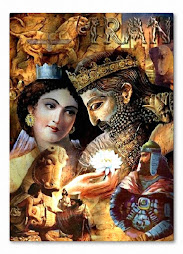
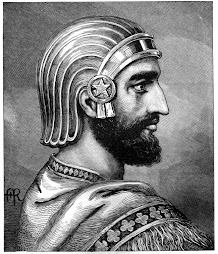
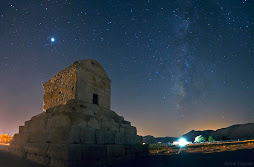









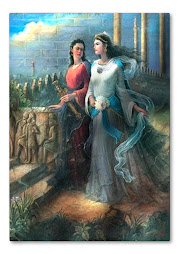








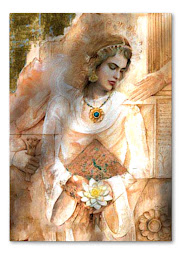

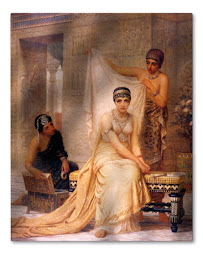

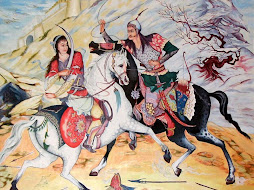

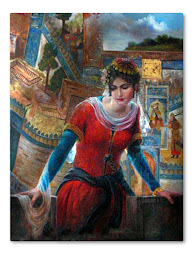
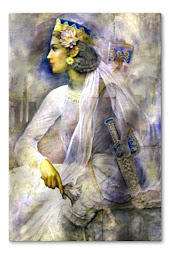
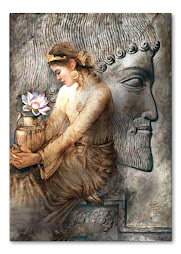
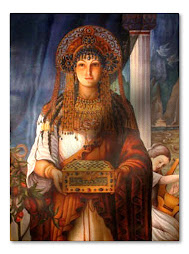

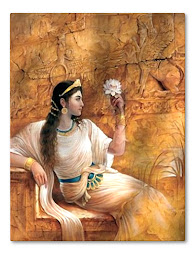

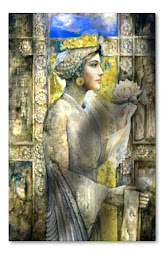



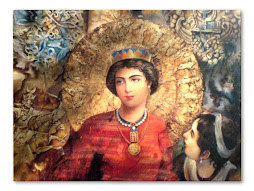


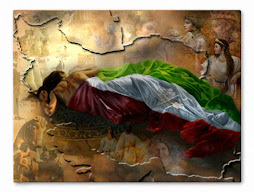





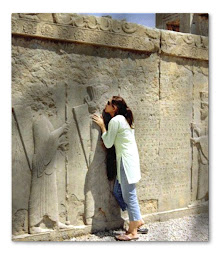


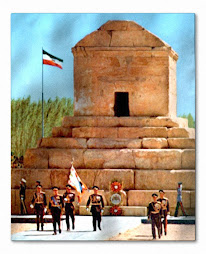






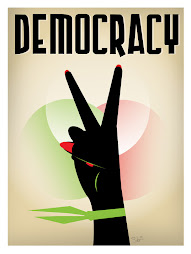
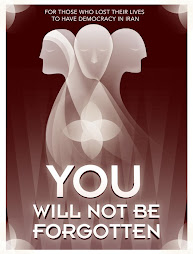







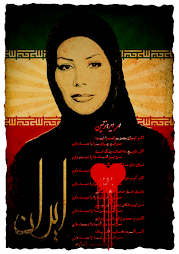










.jpg)
